Money Game: Episode 1
by TeriYaki
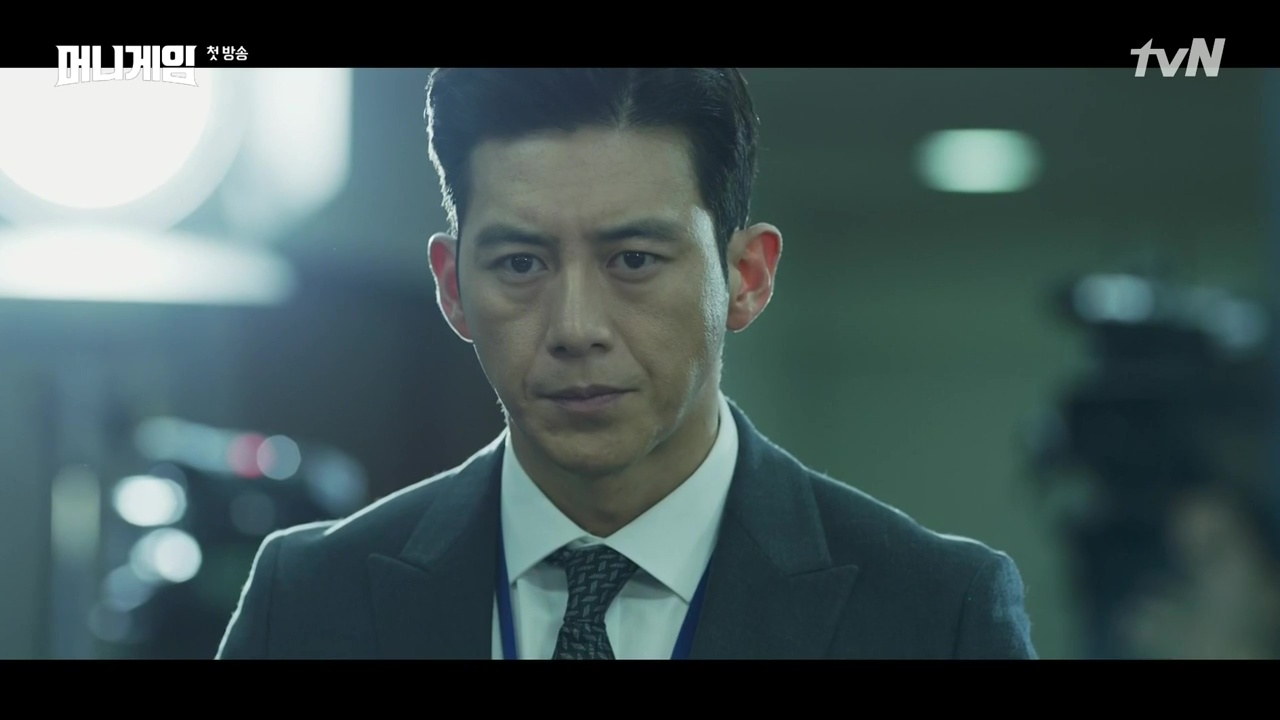
Korea is on the precipice of financial calamity, and a failing bank serves as a reminder of the turmoil caused by the IMF Crisis of the ’90s. Our protagonists remember that time all too well, and with one person obsessed with heralding in a new economic era, what will that mean for a nation and our heroes?
Note: This is a just first episode recap.
EPISODE 1: “Under Fire”
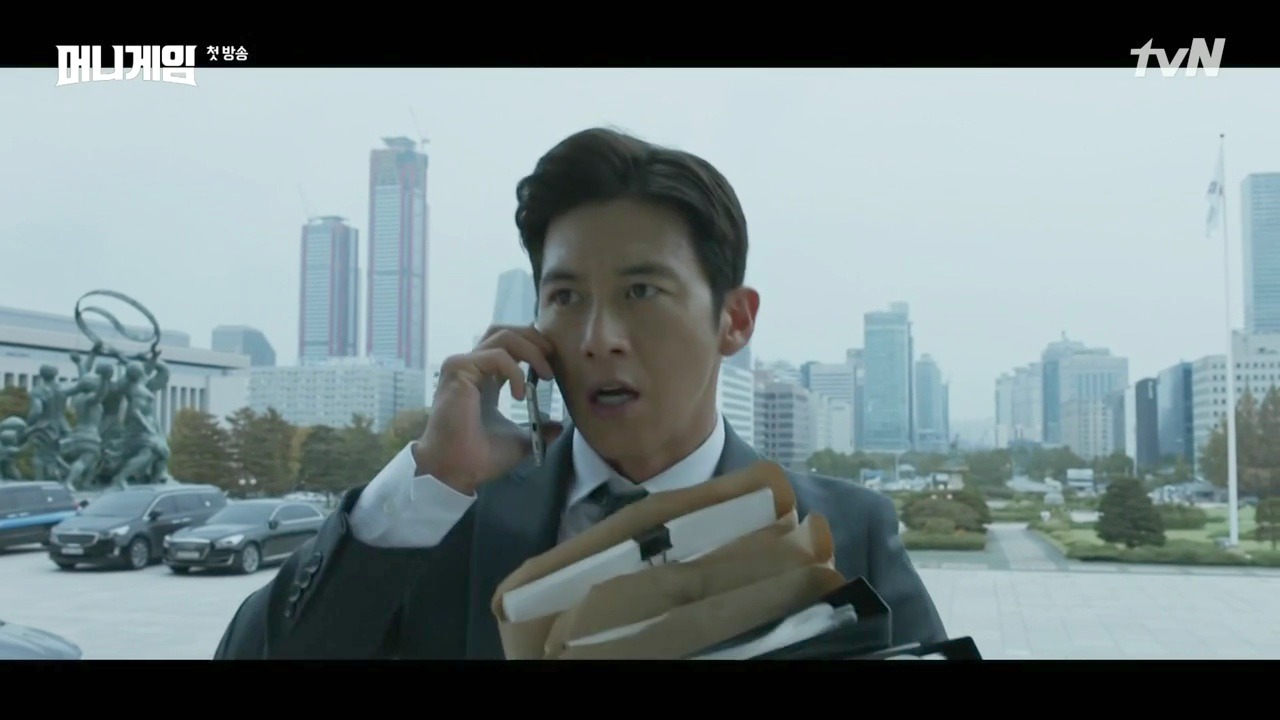
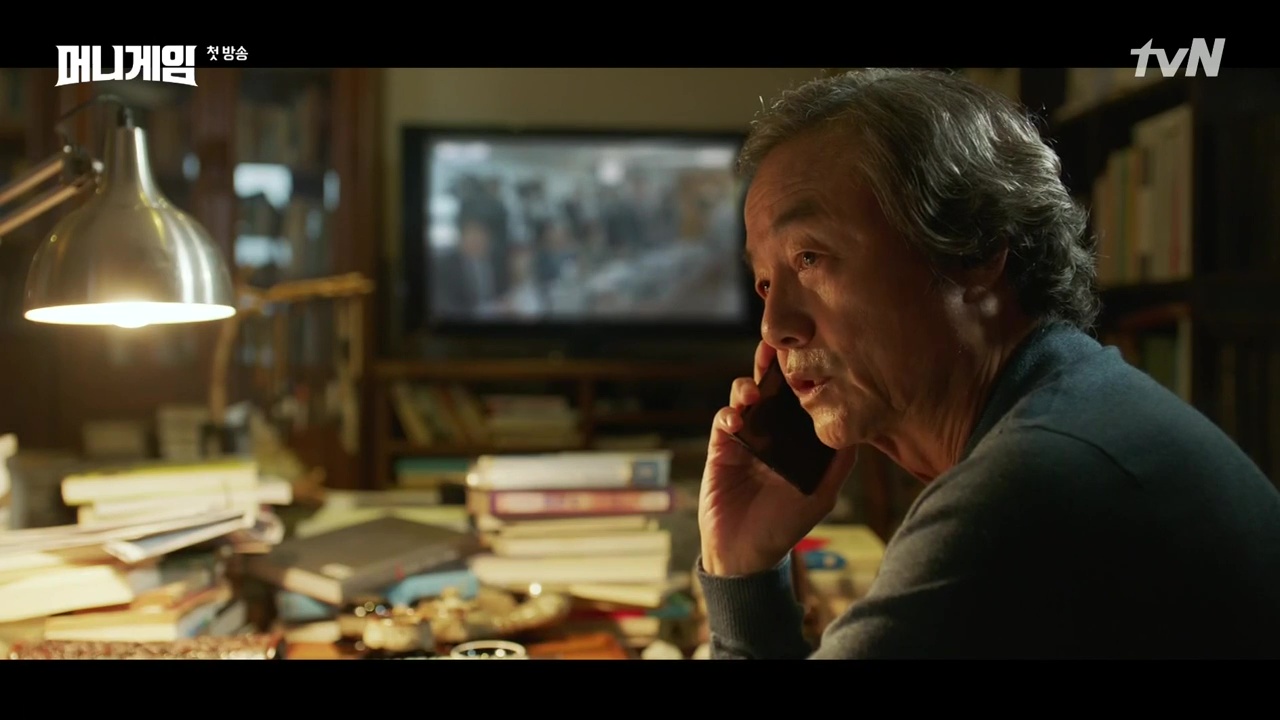
Stuck in traffic, CHAE YI-HEON (Go Soo), Chief of Financial Policy at the Financial Services Commission (FSC), watches the news on the small screen on his dashboard. The report explains that after a government audit on a troubled bank, the National Policy Committee called a hearing where Yi-heon’s boss, Chairman Go Sang-ho is being questioned.
Yi-heon’s father, PROFESSOR CHAE BYUNG-HAK (Jung Dong-hwan), former chair of Seoul National University’s Economics Department, calls Yi-heon to ask if he’s going to participate in the national hoax. When Yi-heon explains that he can’t discuss the case, Professor Chae reminds him that when a bureaucrat can’t tell the public the truth, the citizens are being deceived.
As he nears the National Assembly, Yi-heon hangs up. Professor Chae sits among his many stacks of books and journals as the news reports that the current administration is being pressured to liquidate/sell Jeongin Bank.
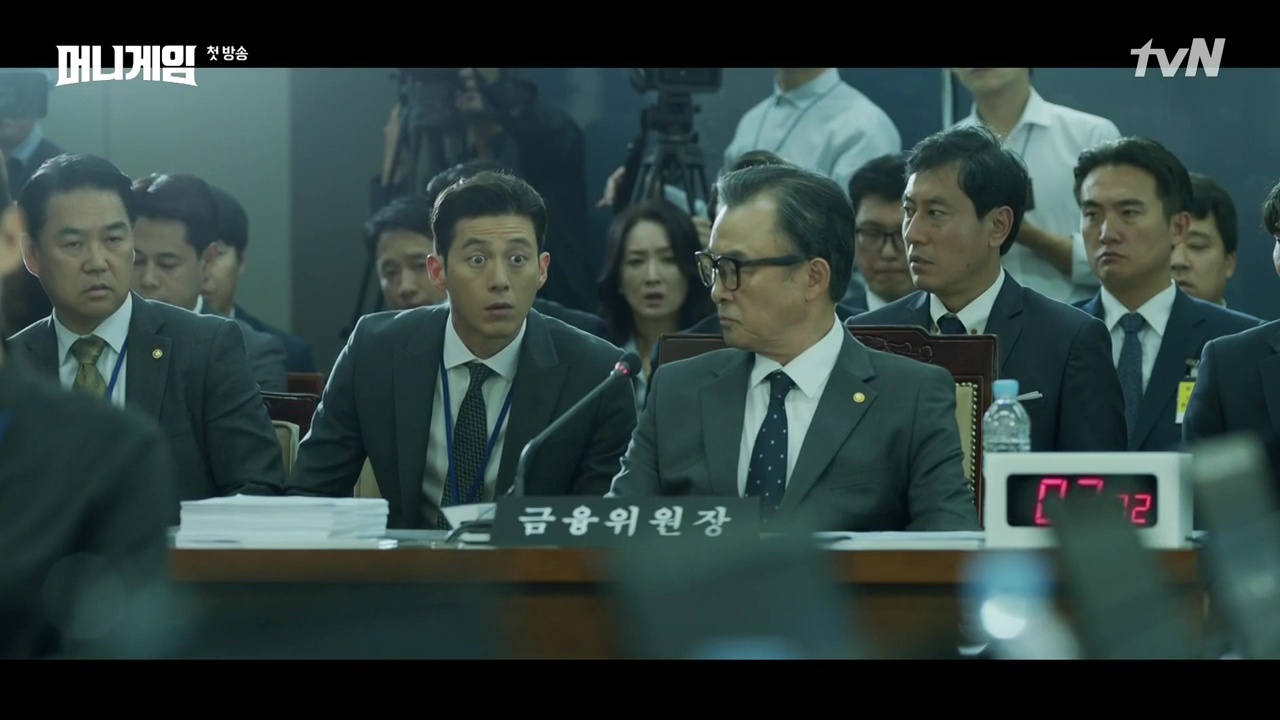
When he reaches the National Assembly, Yi-heon grabs some reports as he gets another call from his father and runs to the hearing. As part of Chairman Go’s team, Yi-heon is well versed on Jeongin’s customer accounts, including the corporations that took out huge loans. Unfortunately, he’s seated too far from Chairman Go to help him answer an assemblyman’s detailed questions.
Yi-heon is moved to the seat directly behind Chairman Go to feed him information and when the assemblyman catches on, he calls on Yi-heon directly. When Yi-heon is able to report that $2.4 billion of Jeongin’s loans are in default, the room murmurs in disapproval and Yi-heon’s colleagues start to squirm.
At the training center for government employees, FSC Vice Chairman HEO JAE (Lee Sung-min), warns a roomful of new civil servants that pretentious bureaucrats think that they know more than the public. He points out that during the IMF Crisis (International Monetary Fund), the public recognized the signs of a bad economy but civil servants chose to focus on favorable indexes.
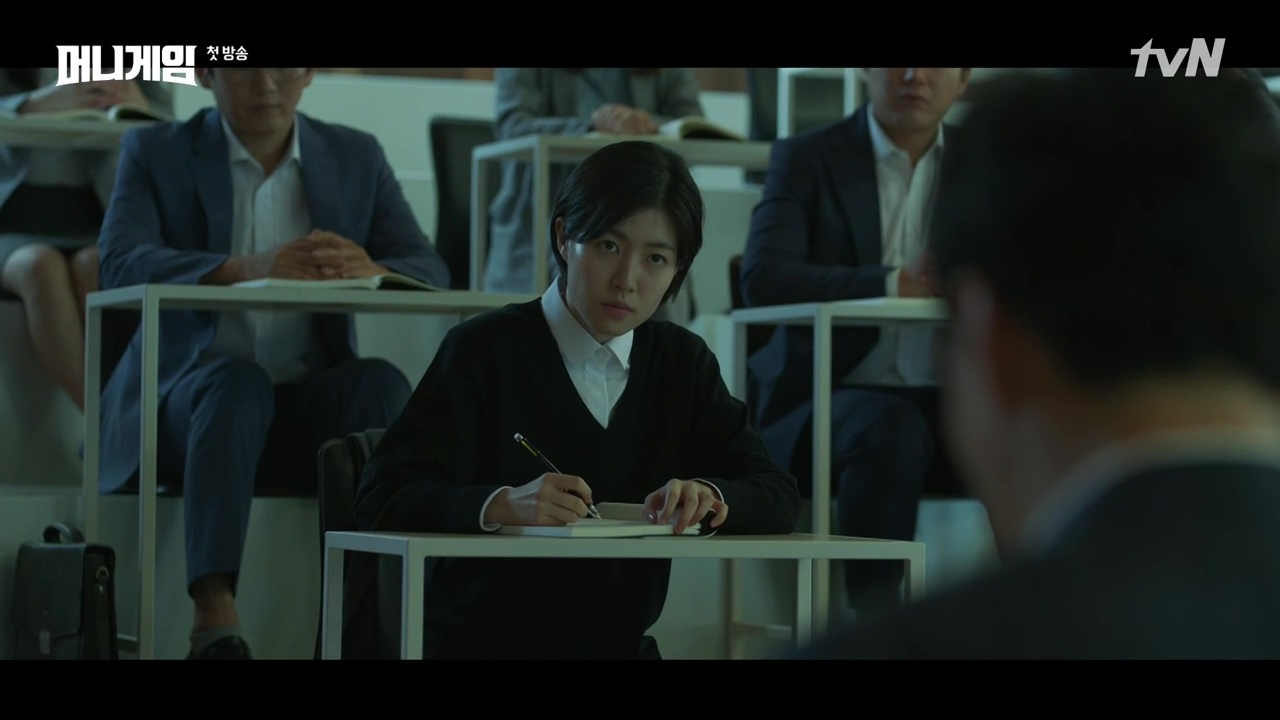
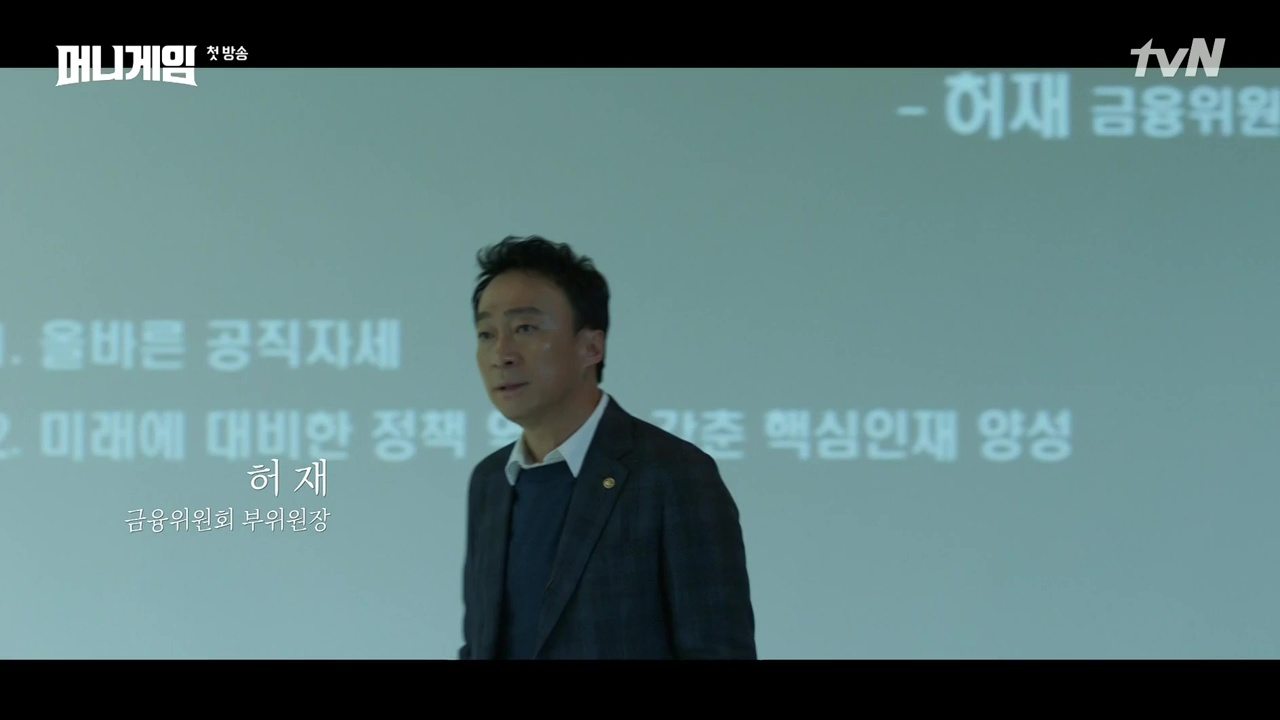
One of the trainees, LEE HYE-JOON (Shim Eun-kyung), a Level 5 civil servant, looks up when Heo Jae admits, “I was outraged.” Somberly, he warns the class, “I hope you’ll remember to always be humble and become a civil servant who listens to what the people have to say.”
Before dismissing them, Heo Jae offers to answer one question. When no one speaks up, he points to Hye-joon and asks her, “Why did you become a civil servant?” Her answer is simple, “I wanted to be someone who worked for the people.”
After reminding him about the failure of the civil servants in the IMF Crisis, Hye-joon presents her question, “I’d like to ask what kind of a civil servant you are at this moment.” Hye-joon expresses concern that in light of the current crisis, nothing has changed.
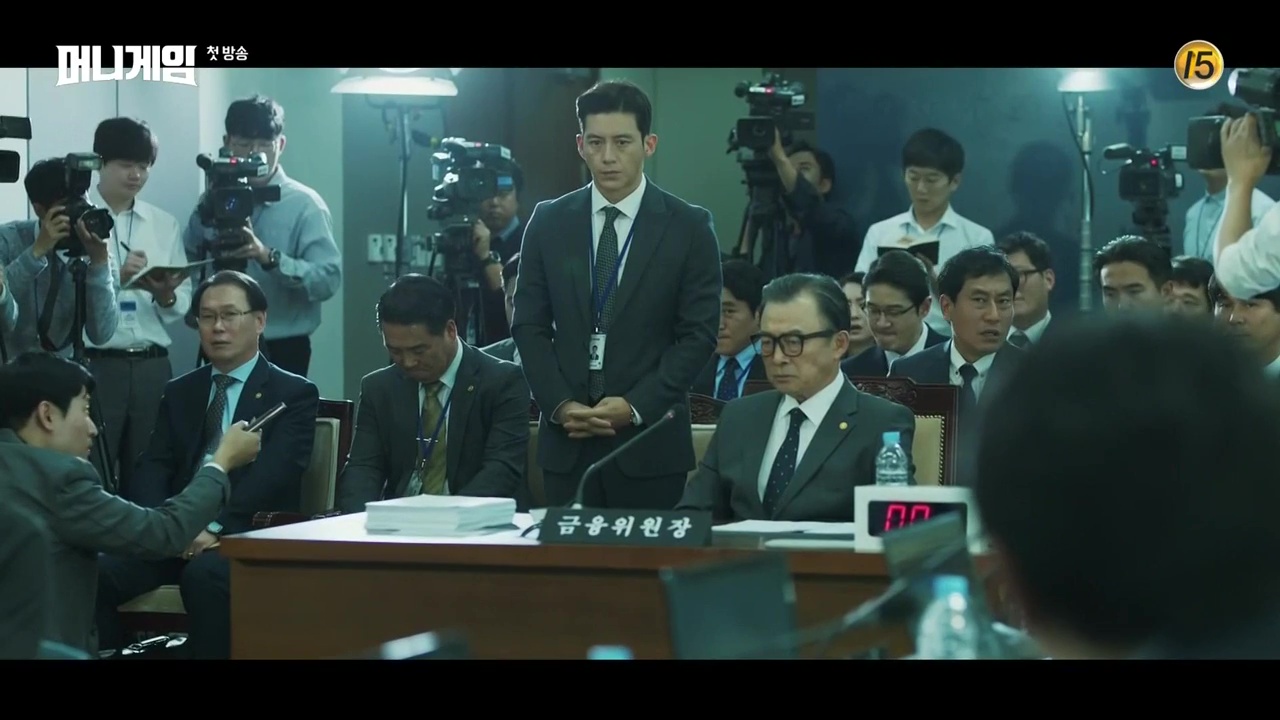
Back at the hearing, Yi-heon is asked if Jeongin Bank should be bought out and after recalling his father’s warning about speaking the truth, agrees, “…it is one of our options.” The answer causes an uproar and when asked if the government’s intervention to save Jeongin Bank was a mistake, Yi-heon softly murmurs, “Yes.”
After considering Hye-joon’s question, Heo Jae has the motto, “The civil servant that can make a Nation prosper,” in mind when he gives a puzzling answer. He talks about the icy cold and sharp volition of the individual in the economic field and Hye-joon takes note.
Yi-heon’s colleagues gang up on him outside the hearing, worried that the bank’s stock will now plummet. He testily reminds them that’s why the government intervened in the first place. When a reporter calls his coworker, he emphasizes that Yi-heon’s comments were his personal opinion, not the government’s official position.
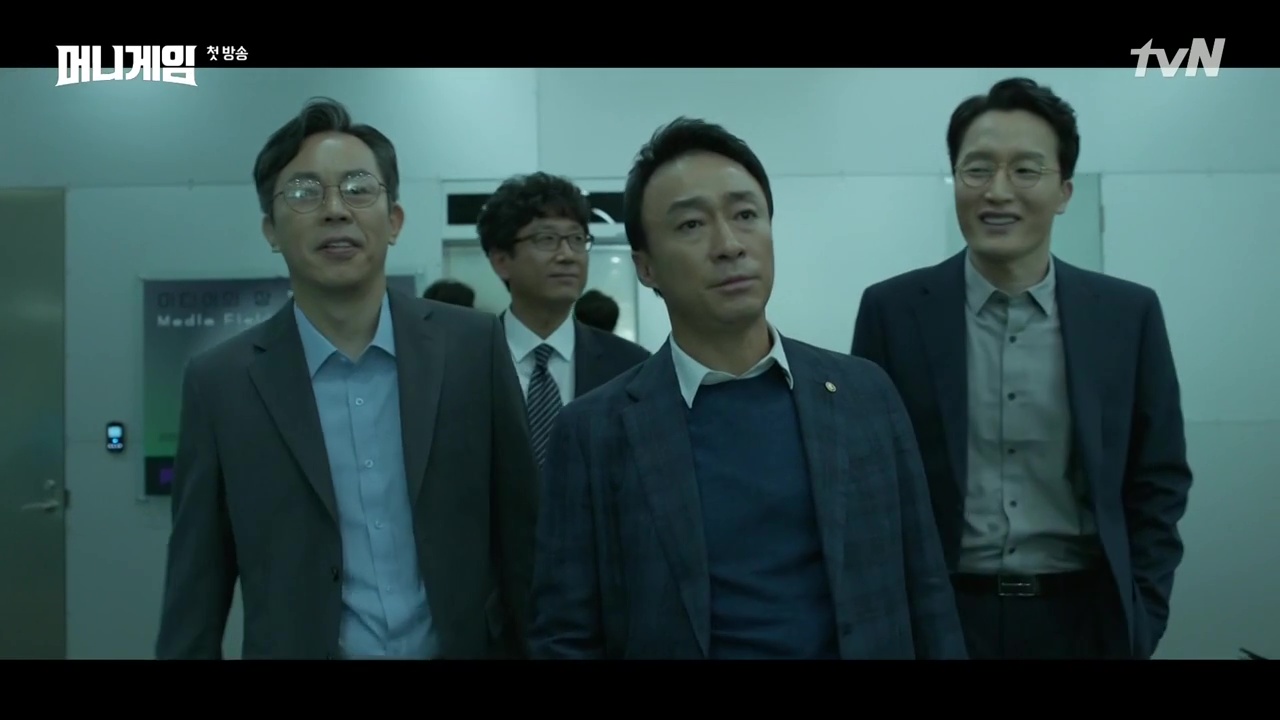
Heo Jae leaves the training center with other senior administrators and the men discuss Hye-joon’s unique situation — she attended an industrial high school, paid her way through a lower tier college and placed third in the Level 5 civil service exam.
As the men part, one of them sees a report of Yi-heon’s comments on the internet. Heo Jae’s friends tease that he’ll become the next chairman but he scolds them for abandoning Chairman Go. Heo Jae drives off but after a short distance, he pulls over to check the reports himself and his lip curls into a smile.
As Hye-joon exits the training center, a young girl greets her aunt and it triggers a memory. In 1998, Hye-joon’s aunt had dragged her to Jaeyoung Bank Headquarters just after it had closed its doors. Hye-joon’s father was among the desperate customers gathered outside of the bank.
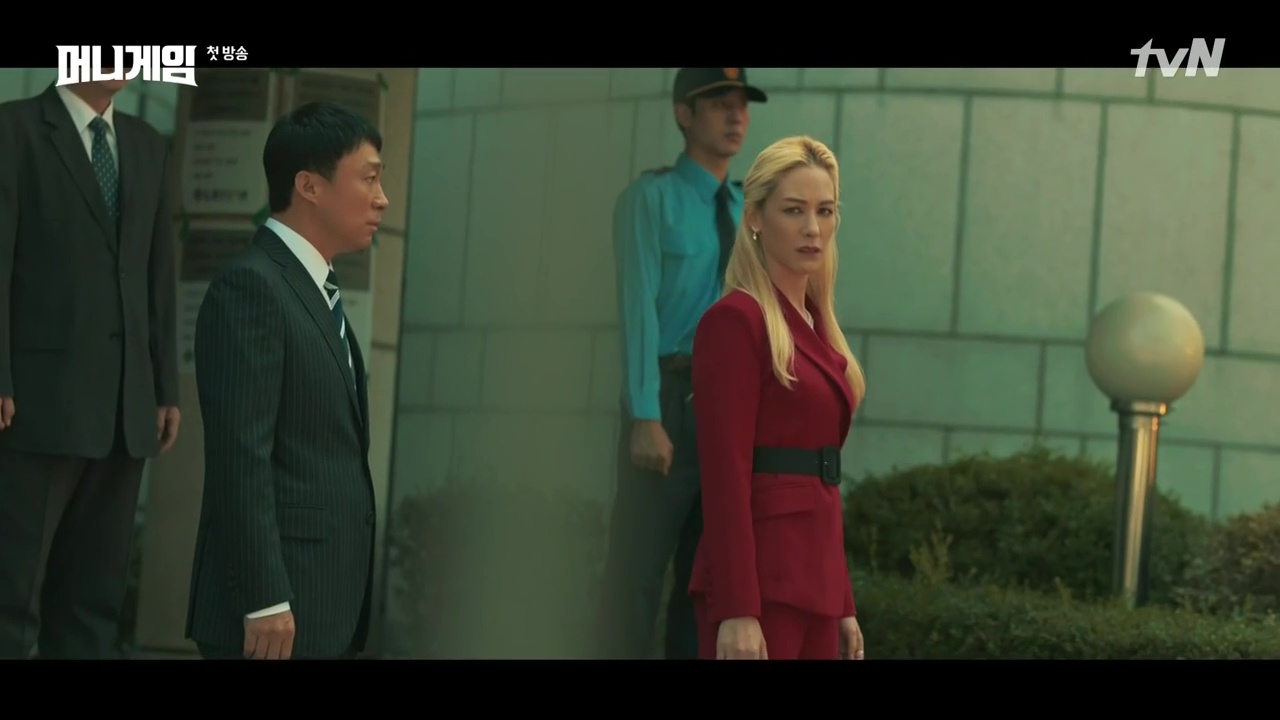
Hye-joon’s dad breached a barricade to confront the bank officials as they exited the building. Hye-joon saw Heo Jae speak to a blonde woman in a red pantsuit as she surveyed the unruly crowd. After the woman was driven away, Hye-joon’s father begged the branch manager for help until security dragged him away.
A frightened Hye-joon noticed that one of the bank officials laughed. After her weeping father was dumped on the ground, Hye-joon’s aunt sent her to his side to get him to go home.
Yi-heon endures an awkward elevator ride back at the FSC and lets out a loud sigh when he reaches his desk. Chairman Go texts a summons to his office and when Yi-heon he runs into his friend, Han Sang-min, he’s told that the mood upstairs is icy.
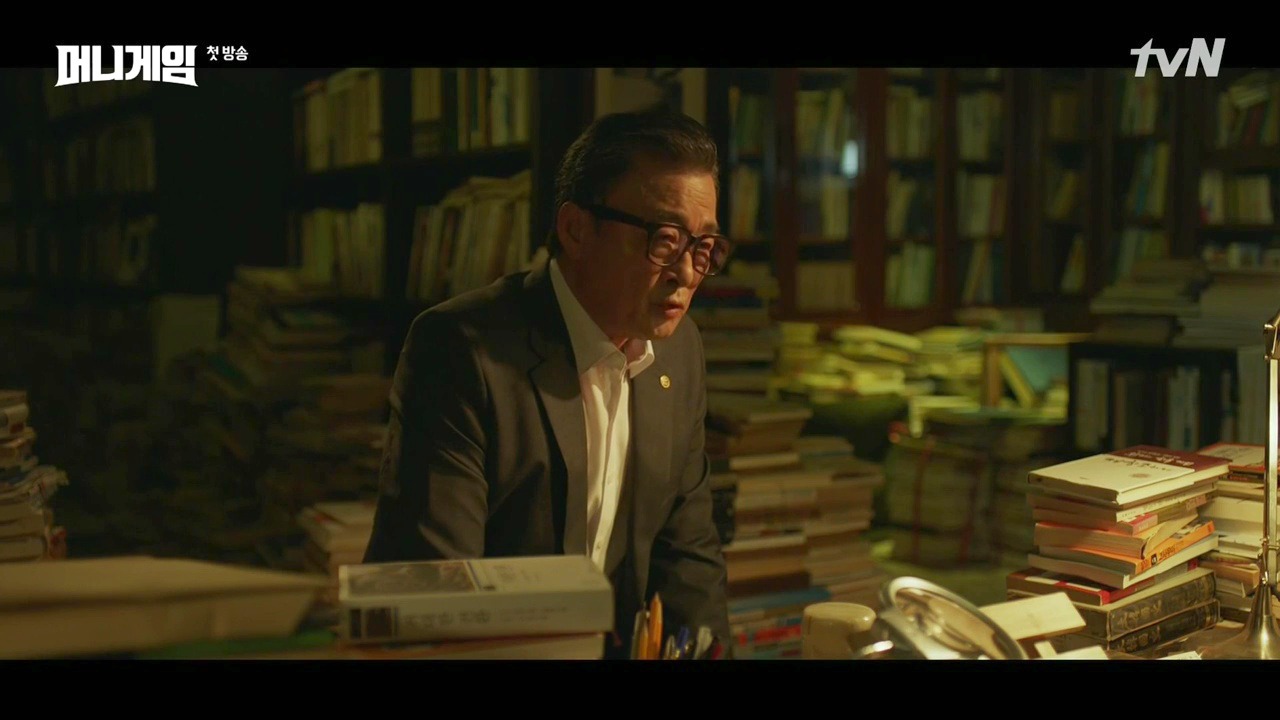
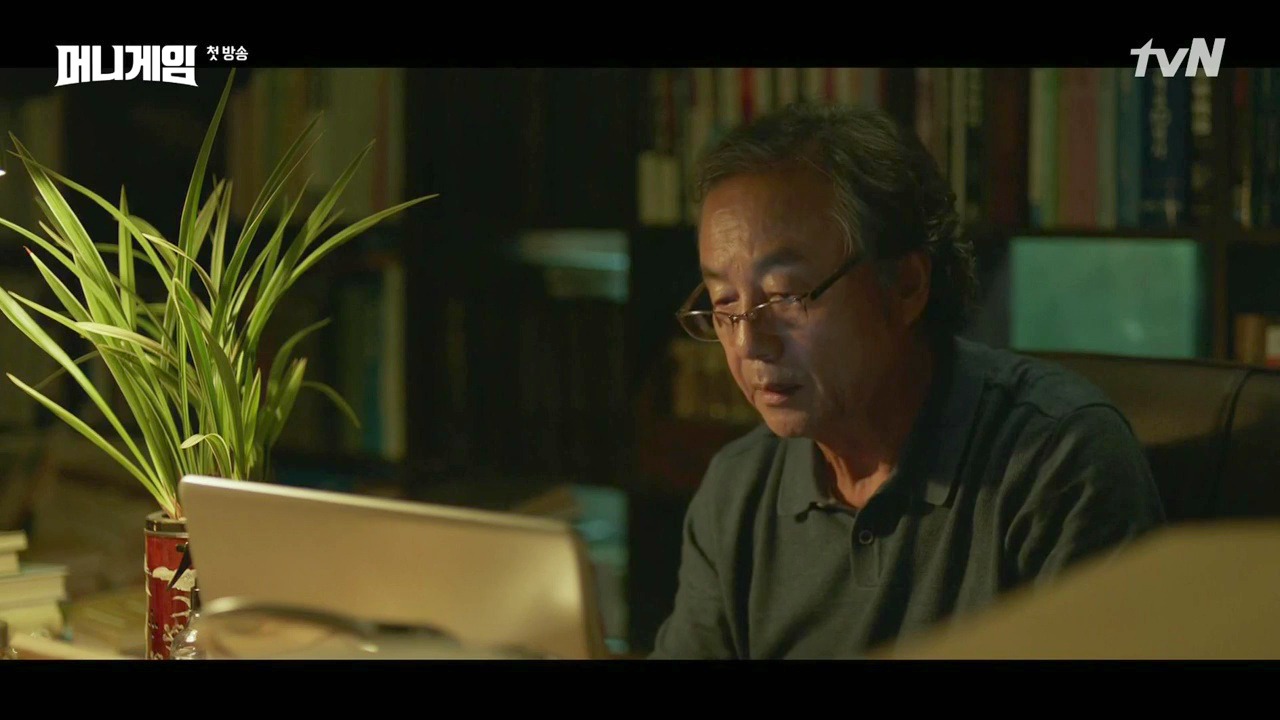
One of Chairman Go’s supporters barges into the office and confronts Yi-heon, who argues, “It’s not like I was wrong.” Yi-heon is accused of ruining the chairman’s career but he escapes when he’s reminded that Chairman Go wants to see him right away.
In his office, an anxious Chairman Go checks the time and walks out. When Yi-heon arrives, he’s told that the chairman just left to see Professor Chae.
Chairman Go kneels before Professor Chae as he busies himself dusting the leaves on a plant. When Professor Chae suggests, “You should use your competence to keep your position instead of asking for help,” Chairman Go insists that the president will listen, if only he’ll make that call.
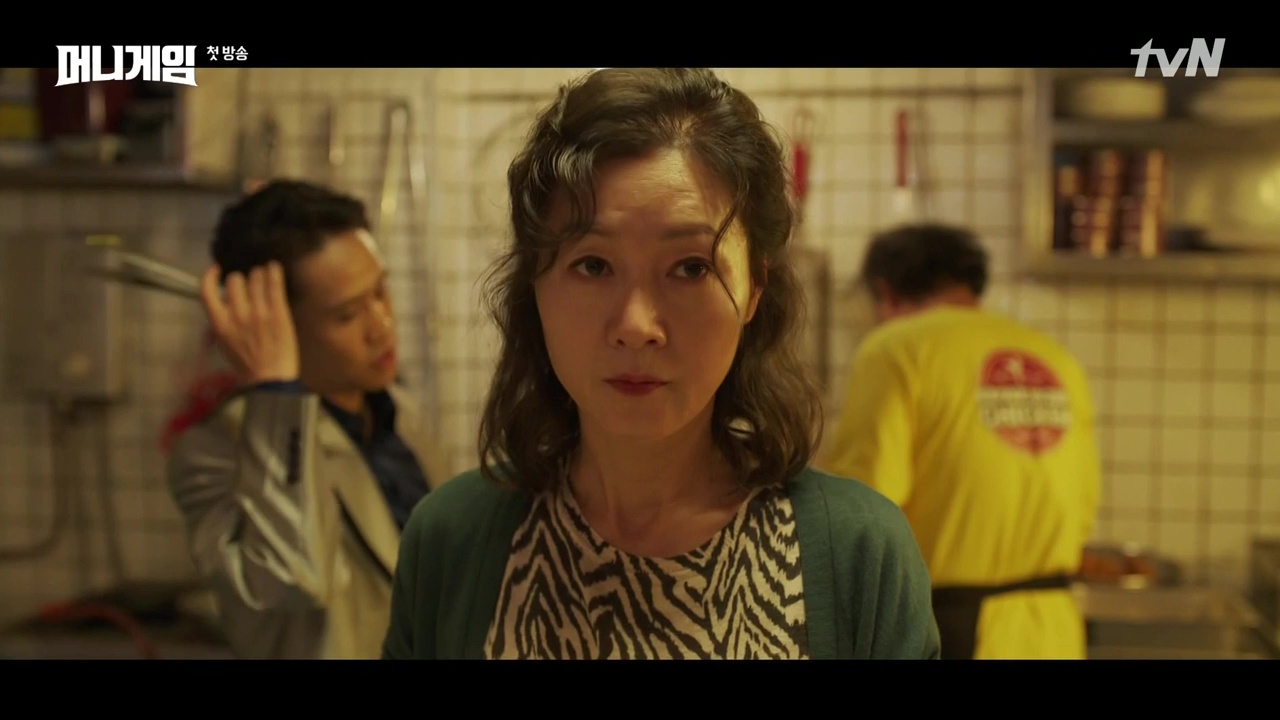
Hye-joon’s aunt and uncle are hard at work at their chicken restaurant when a well-dressed customer walks in. When he explains that he’s in the area taking care of an apartment building that his mother just gave him, Hye-joon’s aunt fumes.
When the man sits down to eat, Hye-joon’s uncle, Soo-ho, recalls that as kids, he came to him whenever he got beat up. His wife grumbles, “Back when he used to hit on me, I doubted that he’d ever grow up. But how in the world did he become so rich?” She removes her apron and heads for the door, reminding her husband that she promised to help Hye-joon move into her new place.
After Hye-joon has a new piano delivered, her aunt sits on the used mattress and suggests that Hye-joon should have bought a used piano and a new bed. Her aunt is suddenly quiet when Hye-joon places a photo of her father on top of the piano, along with a framed $2 bill and her Ministry of Economy and Finance (MOEF) ID badge.
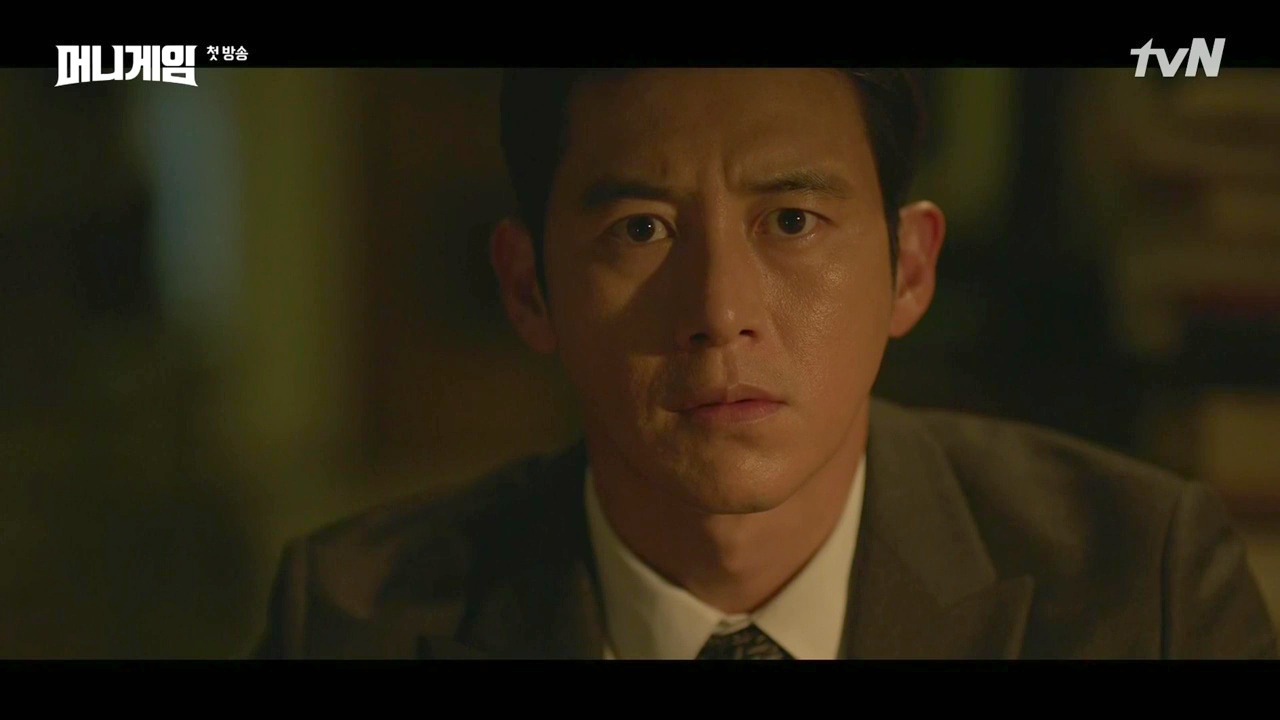
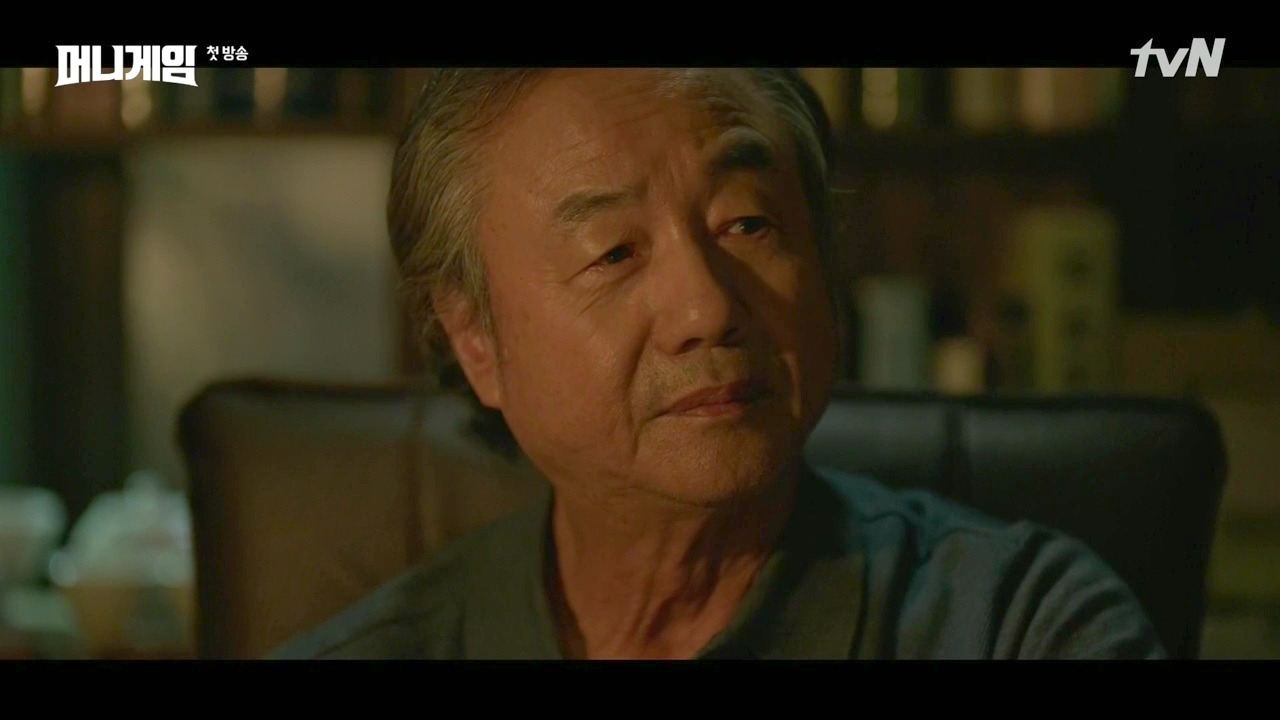
Yi-heon parks outside of his father’s house and ducks out of sight when Chairman Go exits. When Yi-heon joins his father inside, he’s told that he made two mistakes at the hearing — he shared his personal opinion with the entire country while failing to exhibit confidence.
Yi-heon argues, “You know better than anyone that something needs to be done with Jeongin Bank.” Frustrated, Professor Chae snaps, “You don’t have what it takes to become a minister…you’re nothing but a salaryman,” and then turns away.
Yi-heon is about to leave when the housekeeper announces dinner. When there’s no invitation from his father, Yi-heon claims that he has a dinner appointment but he ends up eating alone at a convenience store.
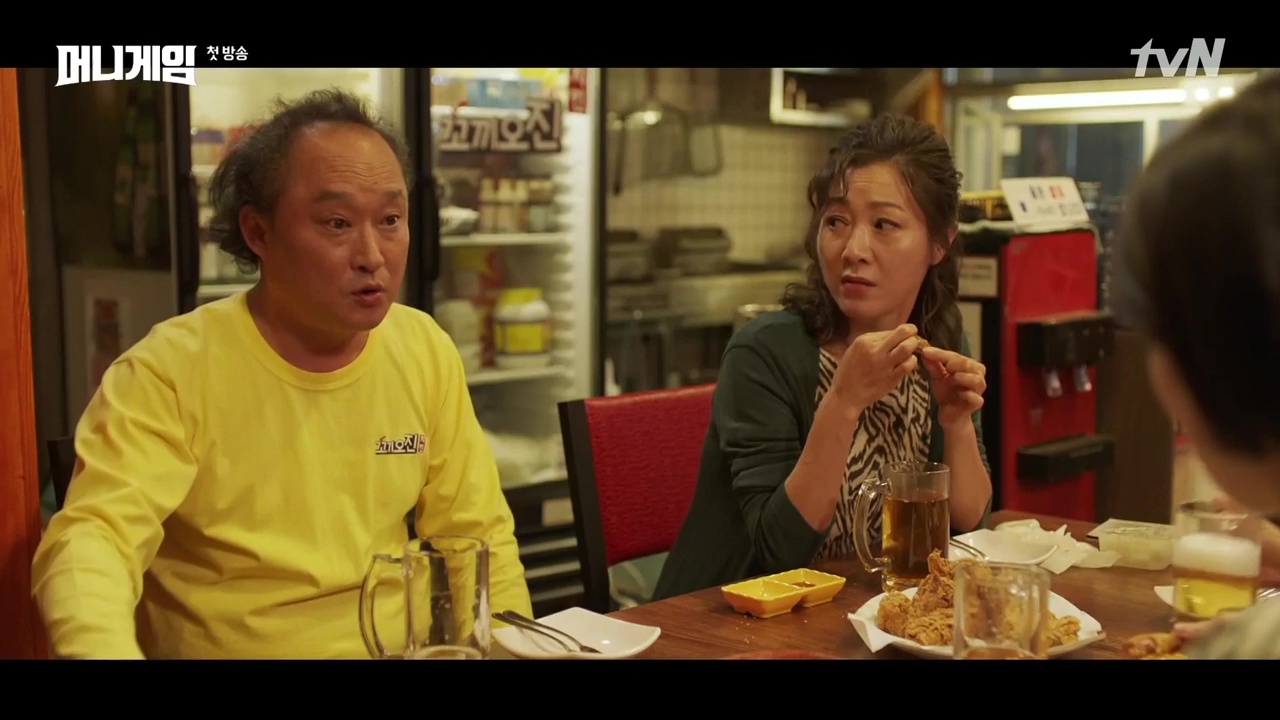
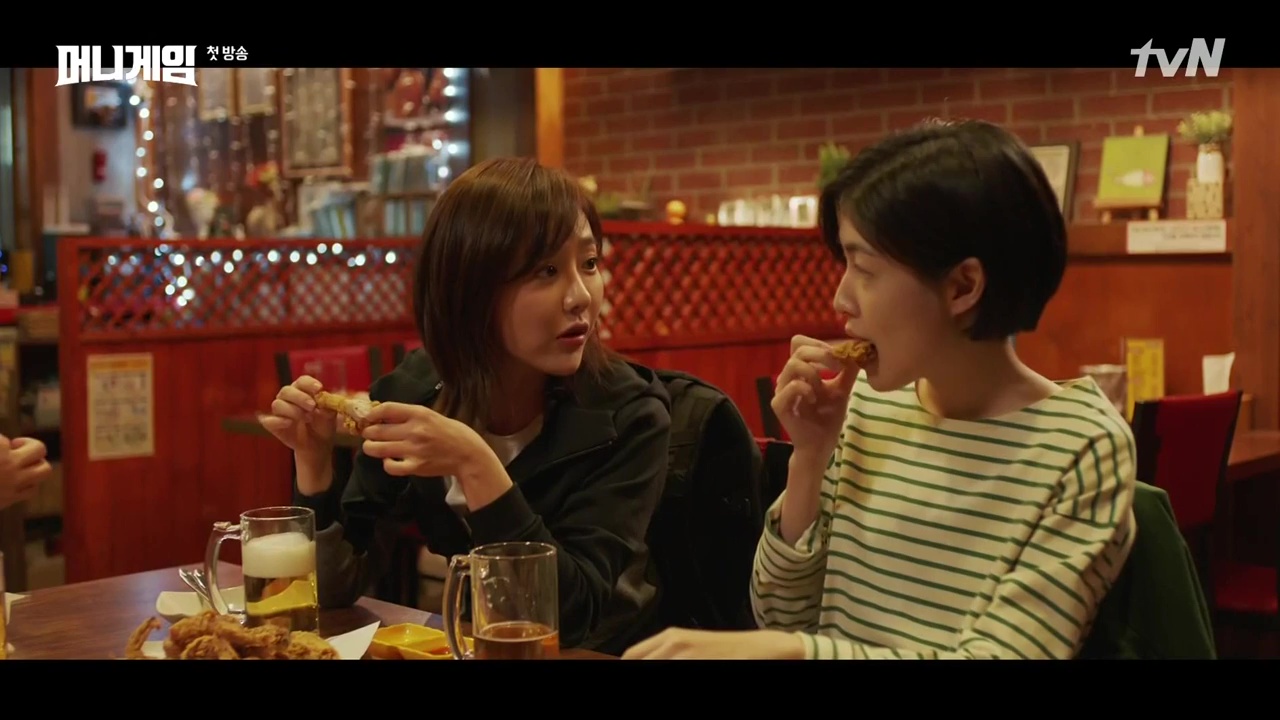
Over dinner at the chicken restaurant, Aunt shares her hope that Hye-joon will become a minister someday but Soo-ho thinks it’s time for her to get married. Aunt won’t hear of it and urges Hye-joon to buy and sell enough houses to buy a building.
Hye-joon’s cousin Ma-ri joins them after spending the day on a team-building hike. As they eat, Ma-ri asks her parents if they’re all right in the tiny room in the back of the store and her mother sighs that it’s all they can afford. When she invites her daughter to stay the night, Ma-ri opts to stay with Hye-joon.
When Soo-ho asks Hye-joon to introduce Ma-ri to a nice man from the MOEF, she guesses that there must be nice men at the broadcasting station. Sick of his attempts to marry off her daughter and niece, Hye-joon’s aunt yells at Soo-ho to drop the subject.
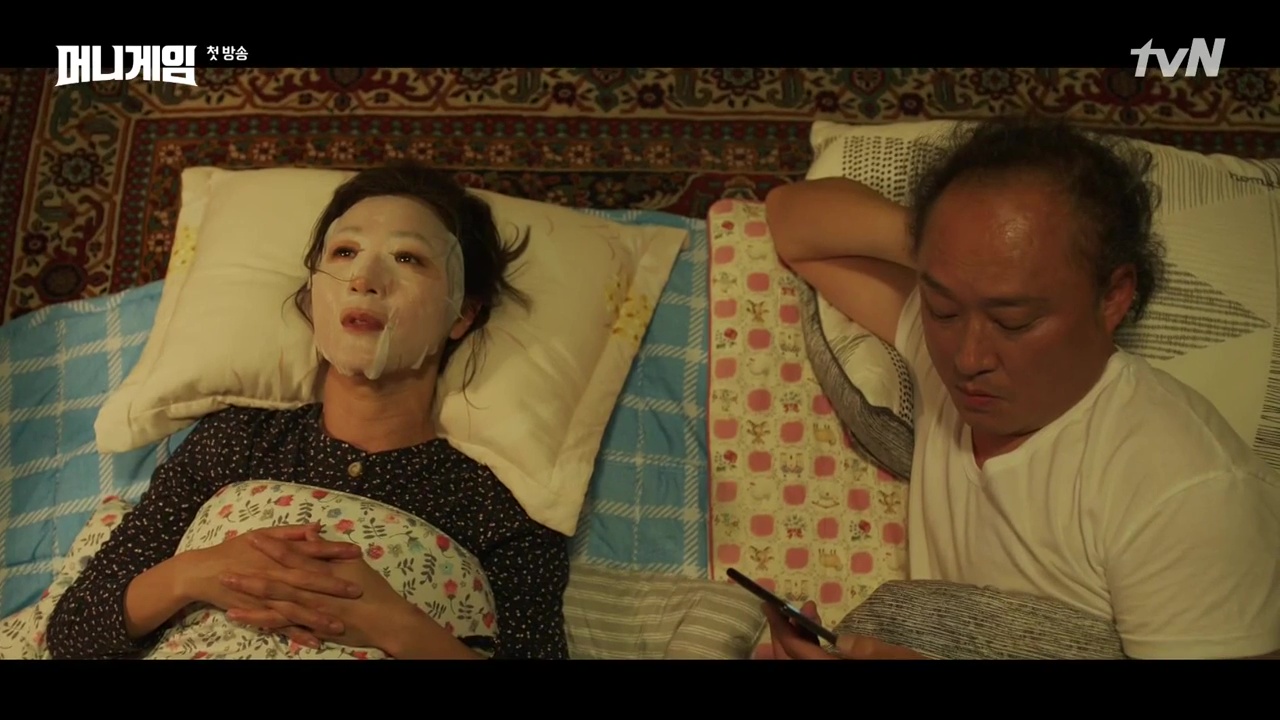
Later, as she gets ready for bed, Aunt tells Soo-ho that Hye-joon set out photos of her brother. Soo-ho recalls that his brother-in-law was so devoted to Hye-joon that he never even considered remarrying.
Aunt regrets not paying back their loan when her brother asked and wonders if it would have made a difference. The money would have paid for Hye-joon to attend a decent high school and Aunt wouldn’t feel so guilty about sending her own daughter to top schools.
Unable to sleep, Hye-joon sits at her piano. Very quietly, she taps out a few notes and is taken back in time. While a younger Hye-joon practiced a classical piece, her drunk father yelled from his bedroom for her to play his favorite song.
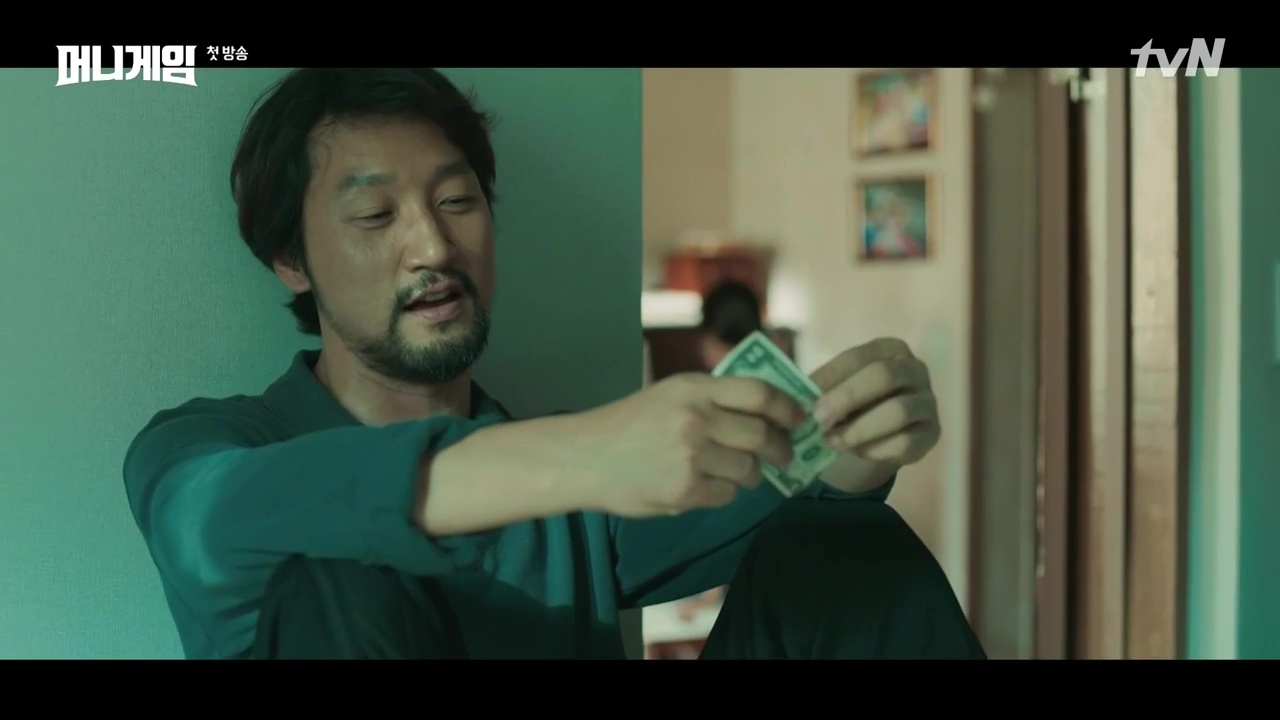
As he sang, “The bright sunny day will be back…You will be able to do anything if you put your mind to it,” Hye-joon dutifully played the melody. Crumpling a $2 bill, his voice trailed off, thick with tears. In the present, Hye-joon smiles sadly at the photo of her father and dumps the $2 bill in the trash.
On Hye-joon’s first day at the MOEF, a senior official is enthusiastic about her until he hears that she graduated from Minju University. Hye-joon’s supervisor shows her to her deck in the International Finance Bureau and introduces her to her colleagues. One of them is a graduate of National University of Singapore and he reports that his classmates at the European Central Bank (ECB) unofficially confirmed that their deal is a sure thing.
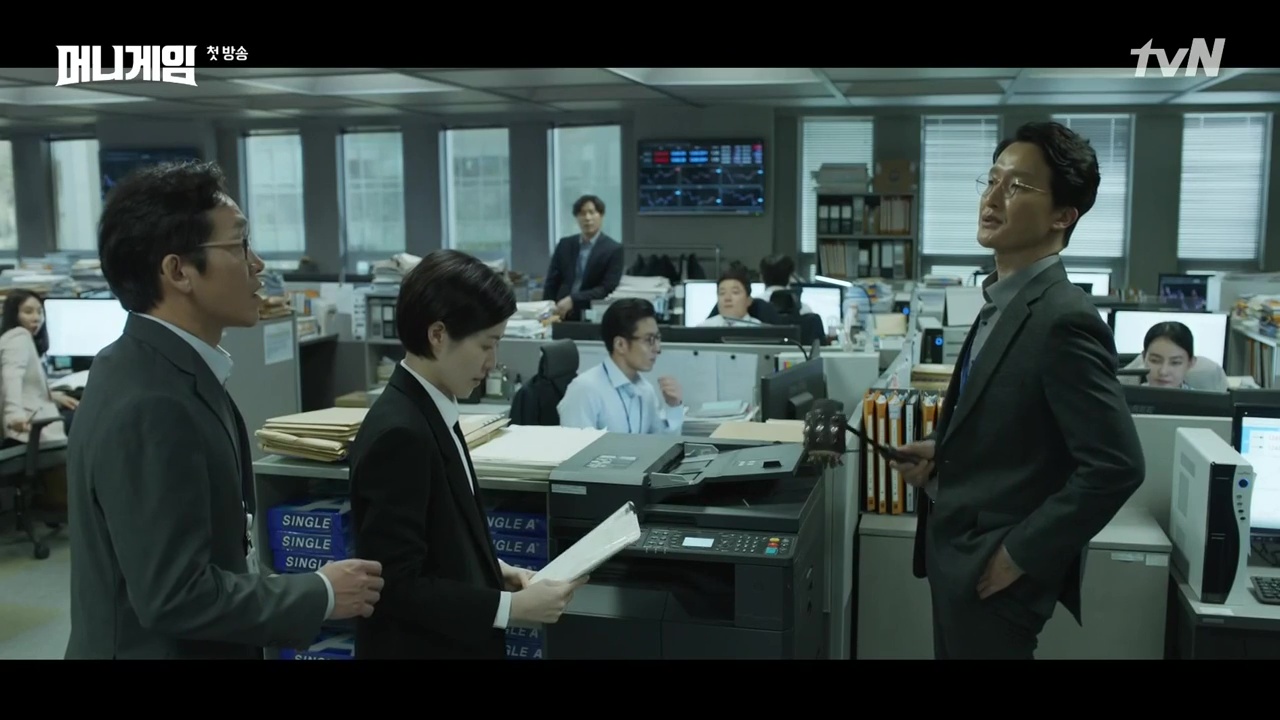
Familiar with Hye-joon’s background, the coworker blurts out his surprise that her university produced someone suitable for their department. Their supervisor laughs uncomfortably and reminds him, “No one looks at the school you went to anymore.”
The chief tries to introduce Hye-joon to Director Na Joon-pyo, but remembering that she attended an industrial high school, he’s decided that qualifies her to make copies. With no office assistants around, Director Na hands Hye-joon a report that he warns is top secret and mutters that she probably can’t understand it since most of it is in English.
Chairman Go takes a break from packing up his office to sit with Yi-heon. Chairman Go explains it wasn’t that he was incompetent, he just believed that hanging in there was an important attribute for an administrator. When Yi-heon gets a text from Vice Chairman Heo, an angry Chairman Go waves him away.
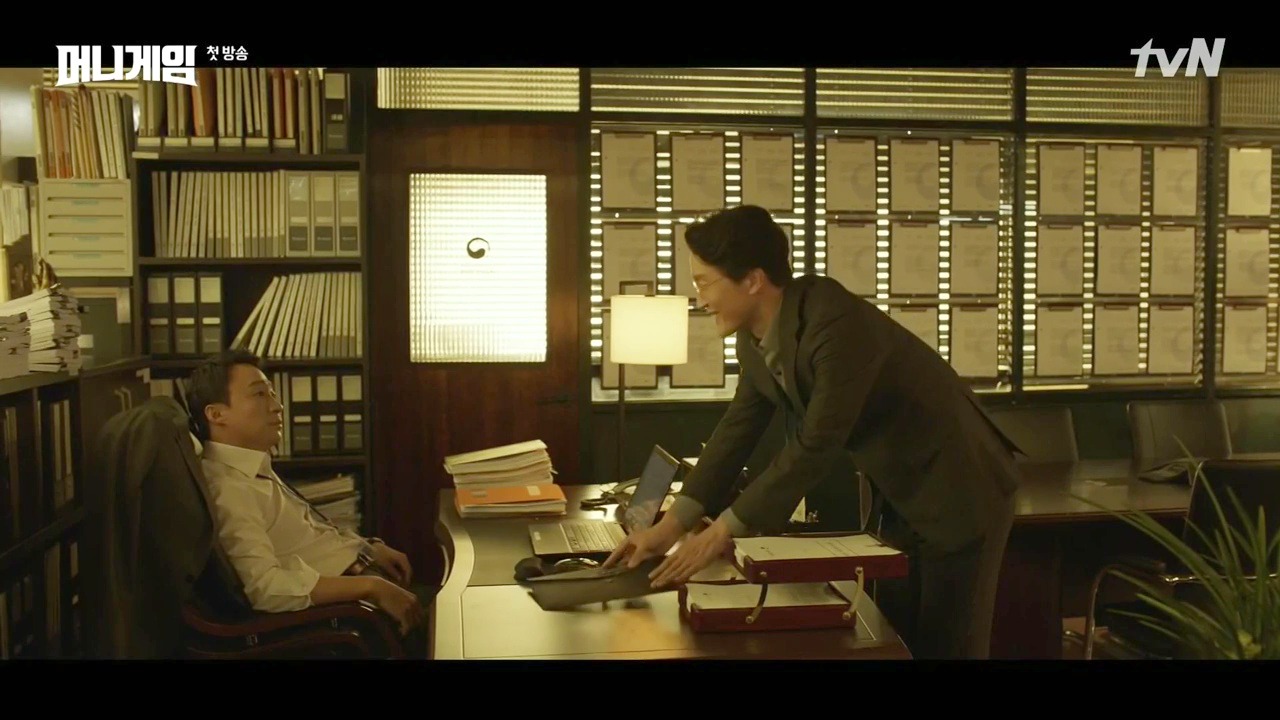
Vice Chairman Heo looks at the confidential report meant for the Blue House that Director Na just handed him. When Director Na explains, “I’m being considered for the transfer to HQ,” it’s clear that he’s angling for Heo’s support.
After Heo Jae tosses the report back, a sheepish Director Na tries again, “If you become chairman of FSC, you’ll have to establish yourself politically…so I wanted you to use it.” Director Na is dismissed after Yi-heon walks in but keeps the report.
When they’re alone, Heo Jae promises that if he becomes the next chairman, he’ll resolve the Jeongin Bank crisis right away. After Yi-heon suggests issuing guaranteed bonds to attract a buyer for the bank, Heo Jae reminds him that the move will invite criticism. Yi-heon argues, “I believe government involvement is unavoidable. We have no choice,” which is exactly what Heo Jae wants to hear.
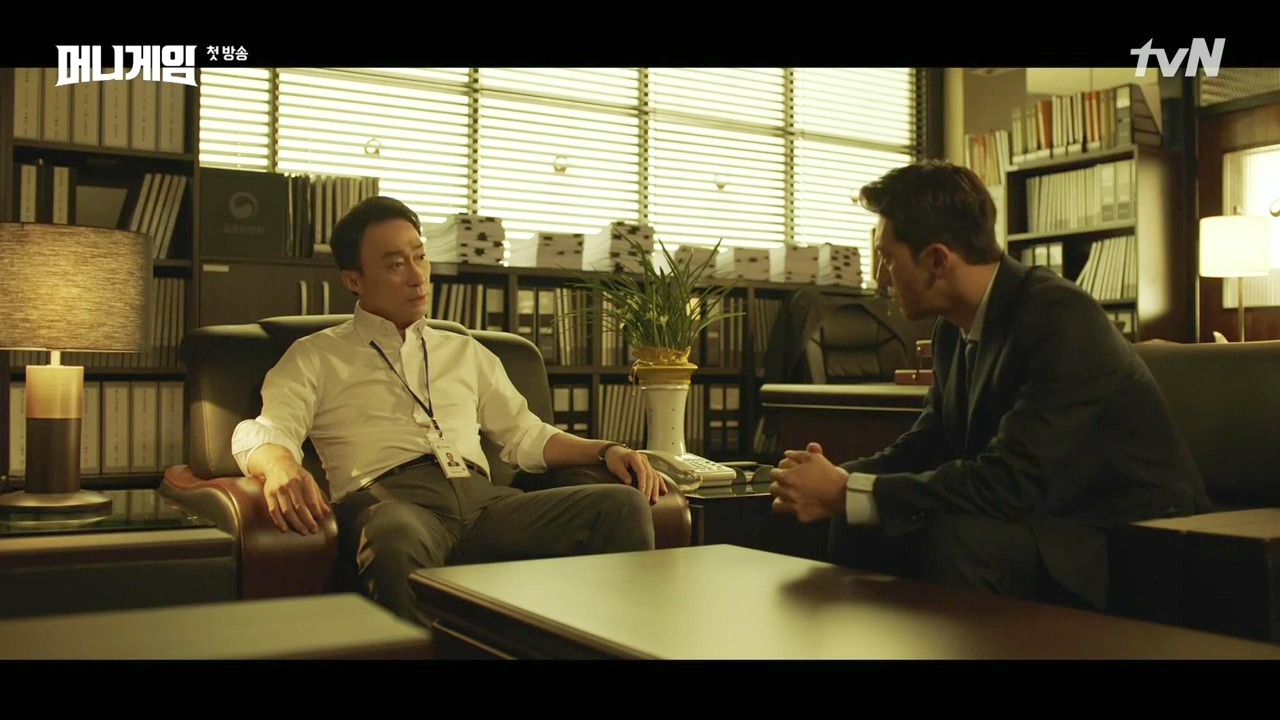
Calling Jeongin’s creditors a cancer on the economy, Heo Jae proposes a major reorganization of the bank. When Yi-heon warns that he’ll be accused of federalizing the economy, he scoffs, “Professor Chae Byung-hak’s minions? Those neoliberalists?”
Heo Jae asks, “You know what free-market capitalists did to our economy after the IMF crisis?” and Yi-hum murmurs, “I do.” Yi-heon is surprised when Heo Jae announces, “You’re my man now.” Later, Sang-min joins Yi-hin at a small restaurant to celebrate and announces that it’s time for him to prove himself.
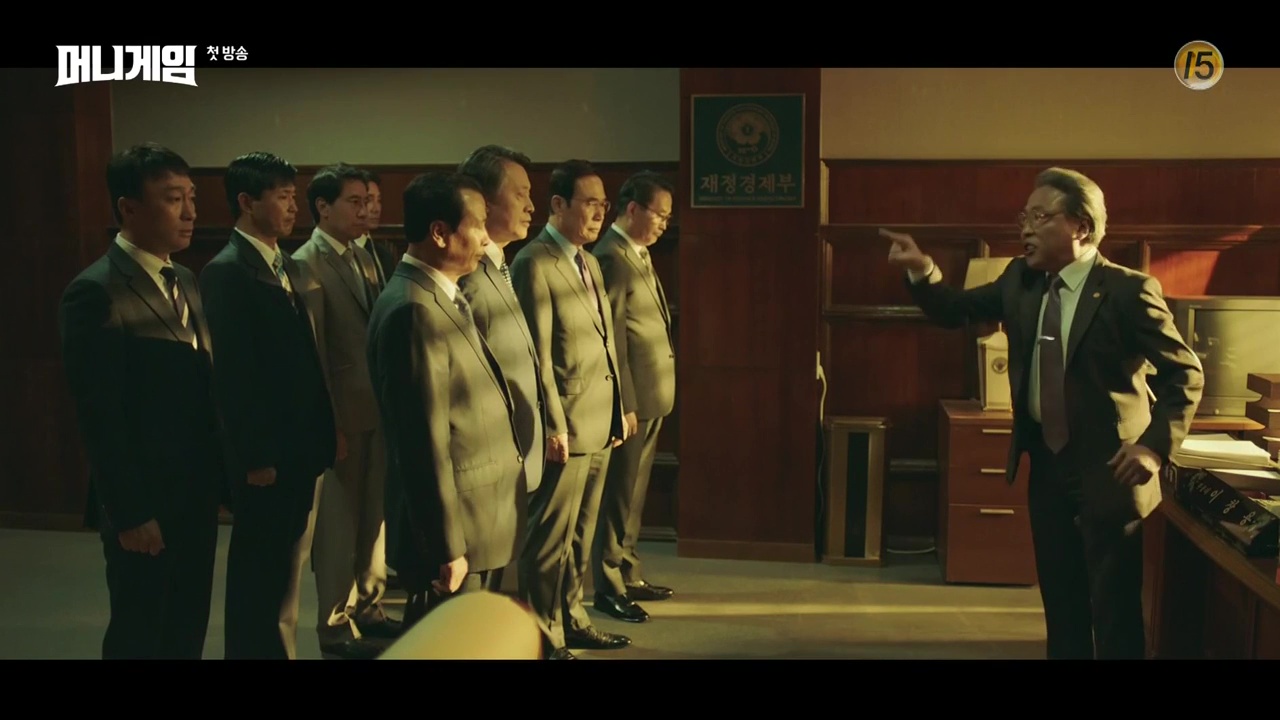
That evening, Heo Jae is driven through a neighborhood of empty storefronts and the taxi driver frets that the economy is worse than before the IMF Crisis. Heo thinks back to 1998, when as a Level 5 civil servant, he and others were told by the MOEF Deputy Minister, “If you attract foreign capital, you are a loyal servant. But if you fail, you’ll all be considered as traitors.”
When Heo Jae later attended a meeting at Jaeyoung Bank, he sat across from the blond in the red pantsuit, Shannon Lucio, Head of Korea Investment Management at Bahama. Also present were the President of Jaeyoung Bank, Lee Jin-seok, and the local branch manager, Kyung Il-gu.
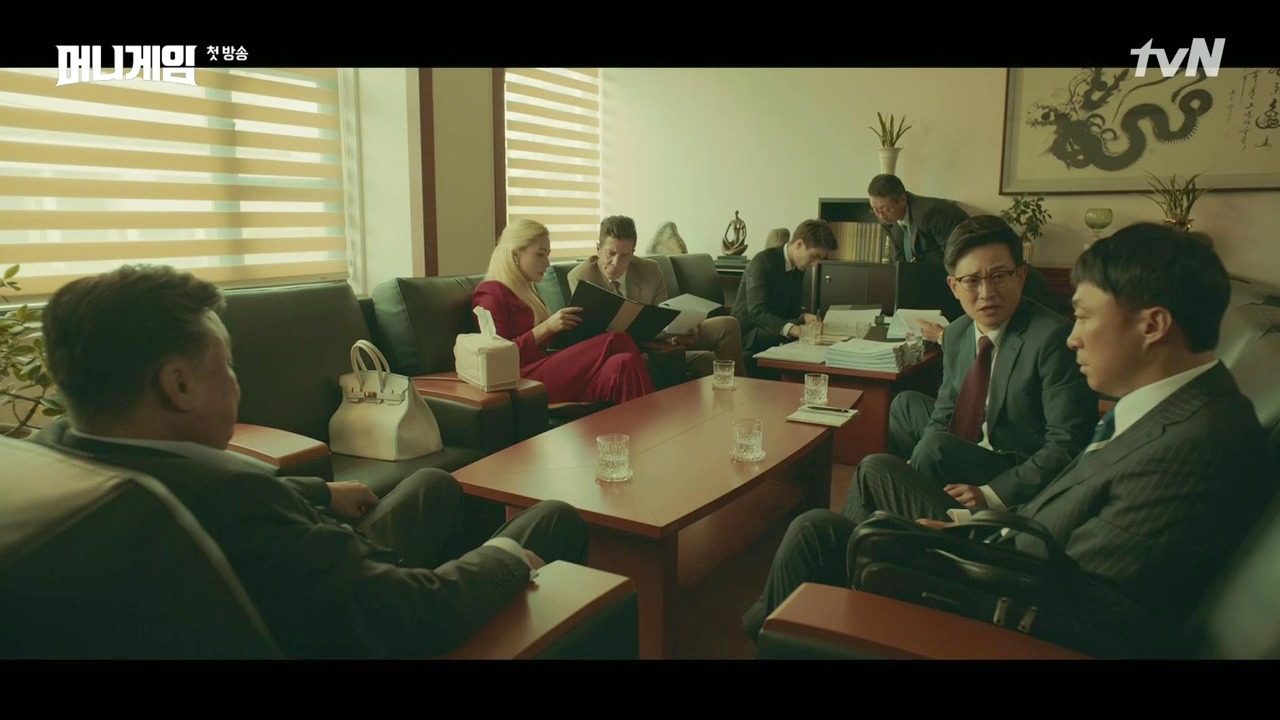
Ms. Lucio had the sniffles so Heo Jae took out his handkerchief as he recalled the Deputy Minister’s order, “Make sure you swallow your pride before you leave this room.” Before he could offer it to her, President Lee gave her a box of tissues and soon there was a pile of used tissues on the table.
When Ms. Lucio announced the closing of the branch, Manager Kyung begged her to reconsider and he turned to Heo for help. Instead, Heo Jae focused on President Lee as he cleared away the dirty tissues while the Deputy Minister’s final instructions rang in his ears, “Do whatever it takes to bring in dollars.”
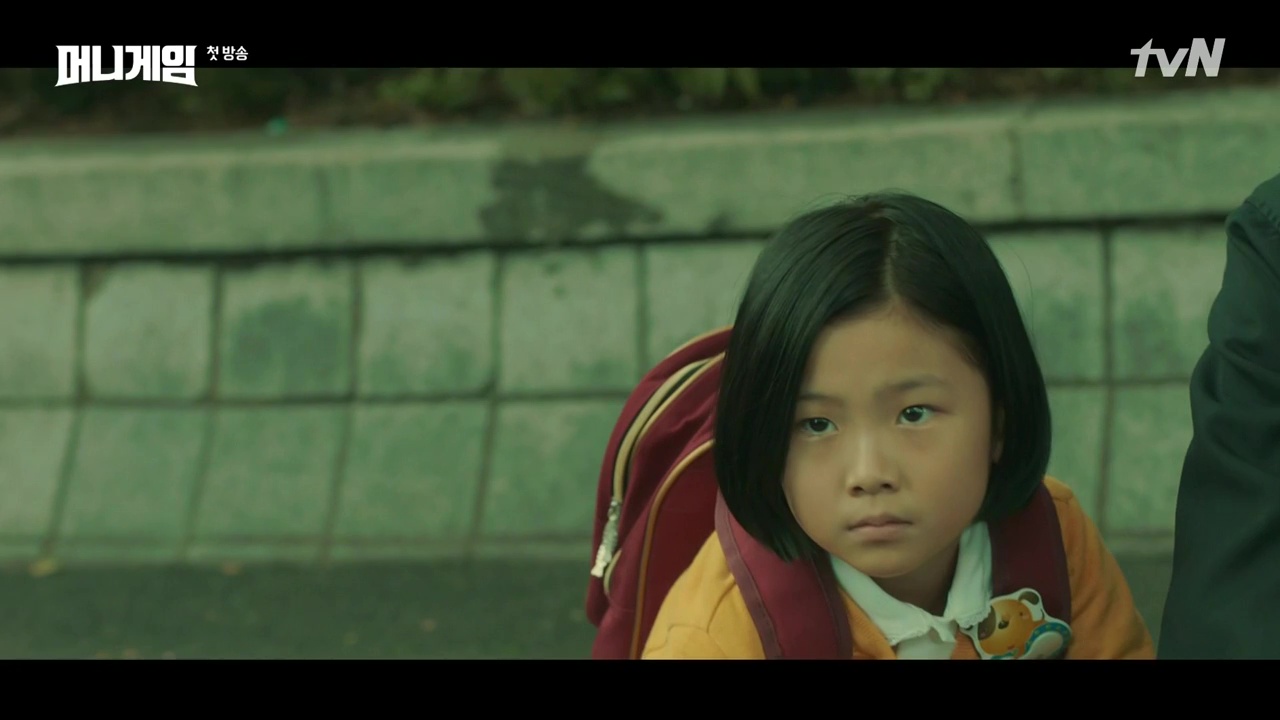
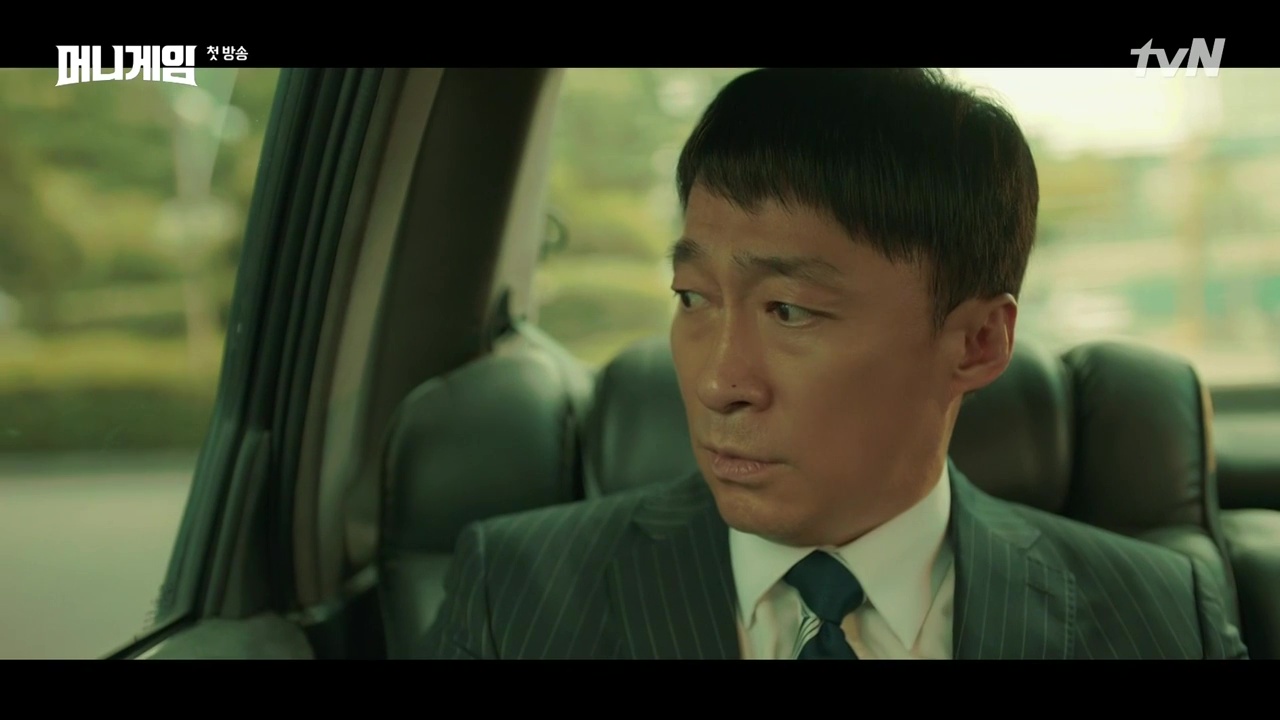
As everyone exited the building, Ms. Lucio saw the crowd and asked if they were dangerous. When she was gone, President Lee called her “evil” and explained that she ordered the closure of the branches in order to take every penny. When Heo was driven away, Hye-joon stared at him.
Heo Jae rings the bell to a luxurious apartment and is welcomed by Shannon Lucio. After a review of Jeongin’s troubling financial reports, Ms. Lucio concludes, “Korea never changes, does it?” When Heo Jae stipulates, “There’s a condition,” Ms. Lucio flatly refuses.
He’s interrupted by a call from the Blue House Chief Economic Officer and repeats, “Professor Chae Byung-hak?” Heo Jae later stares into the bathroom mirror and recalls a recent meeting to discuss Jeongin Bank.
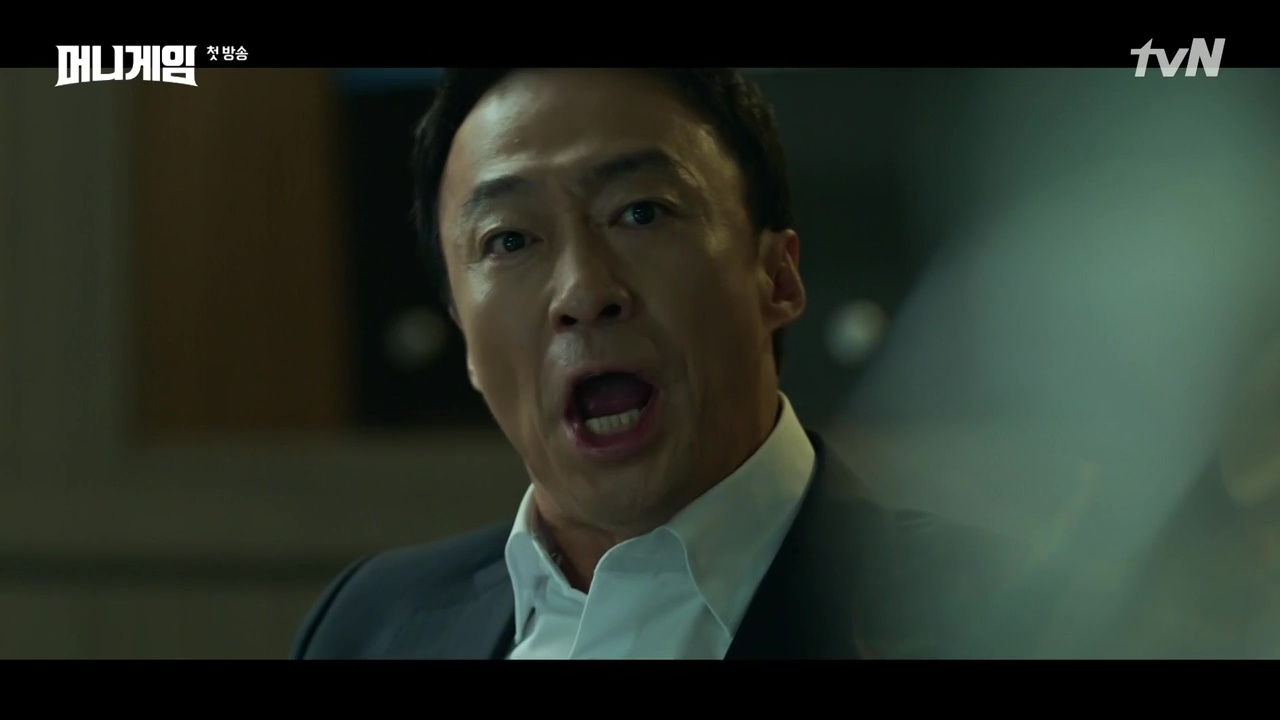
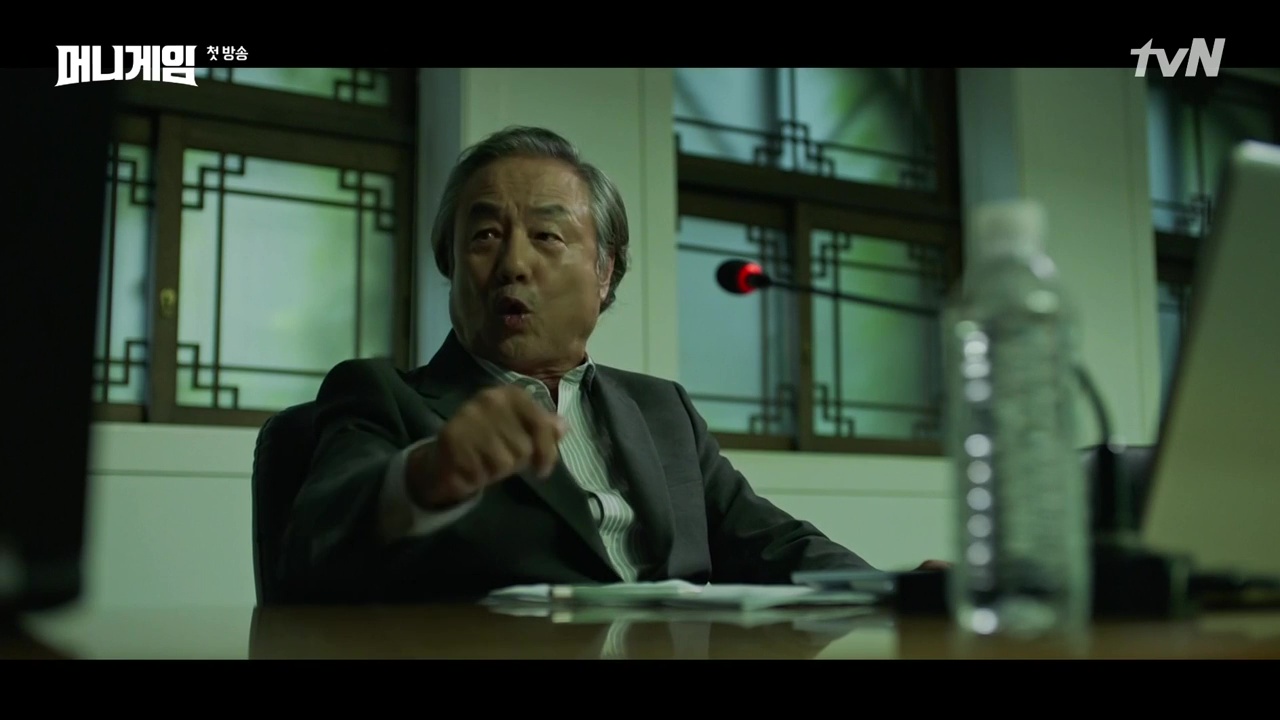
Professor Chae had warned that Heo Jae’s proposal was steering the country in the direction of a dictatorship. When Chae advocated that the financial market should be left to recover on its own, Heo bellowed at him. In an attempt to dismiss Professor Chae’s suggestion, Heo reminded the others, “Let’s talk about our financial status. This isn’t a country known for its fertile land.”
Professor Chae seized on that description, “The government should help fertilize the land! Not nip the sprouts and level the land for us.” Heo glared at Professor Chae, who glared back unflinchingly.
Professor Chae is at work on a report for the President with recommendations for the next FSC chairman when Heo calls and asks to meet. Professor Chae refuses and after he hangs up, types, “Chairman Heo Jae isn’t qualified to be the Chief Economic Officer.”
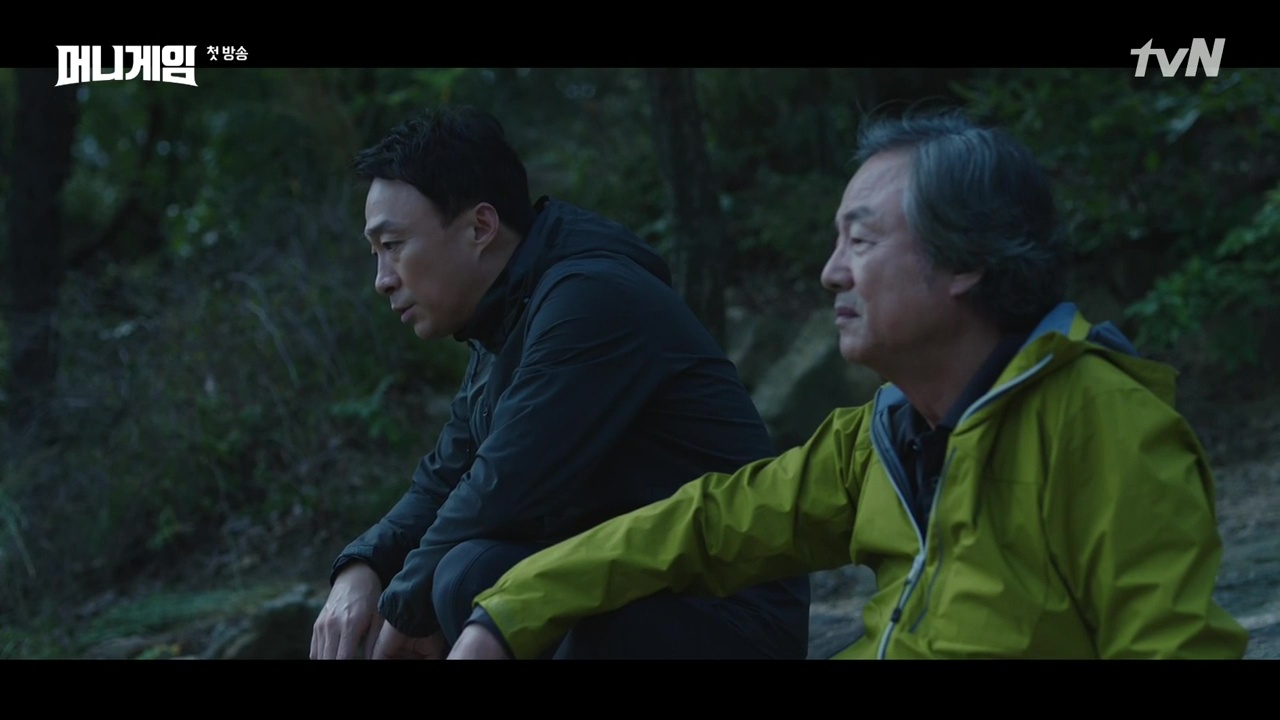
In the morning, Professor Chae leaves his house dressed for a hike. As Professor Chae hikes up a mountain trail, a man dressed in black follows him from a distance. When Professor Chae sits down on a large ledge thanks to a bothersome blister, Heo crouches beside him.
Professor Chae asks him to leave and when Heo remains, he calls the vice chairman unstable. After complaining that Heo never understood the free market, Heo accuses Professor Chae of undermining his mission to fix the nation’s faulty economic policies. Professor Chae tries to explain that Heo’s policies will break the nation’s economic structure and gets called a narrow-minded old man.
Professor Chae begs Heo to open his eyes but all he wants to know is if the academic plans to prevent his promotion. After Professor Chae calls him incompetent and his ideas trash, Heo threatens, “If you stand against me yet again, I won’t let you have your way.”
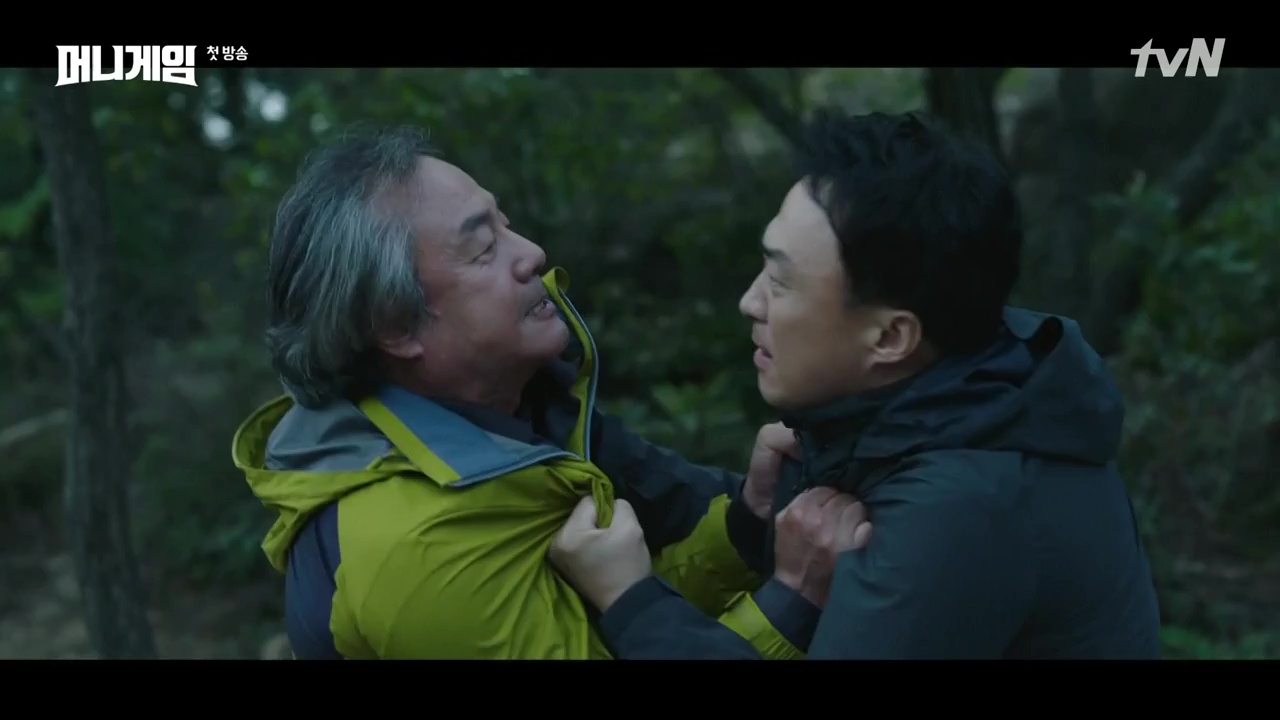
As Heo turns to leave, an incensed Professor Chae yells that bureaucrats like him are a threat to the country which he cannot ignore. Heo grabs Professor Chae by the jacket and blames scholars like him for the country’s woes.
Heo warns, “Just stay put this time,” but Professor Chae wails, “How can I when I know you’ll ruin our economy?” Fearful because Heo never admits when he’s wrong, Professor Chae vows to keep him from taking the country down the same path.
Heo comes unglued and bellows, “You’re ruining everything,” and he pushes Professor Chae off of the ledge. Panting, Heo looks down at Professor Chae, who’s still breathing. Large raindrops start to fall as his eyes close, while up on the ledge, Heo looks up with determination.
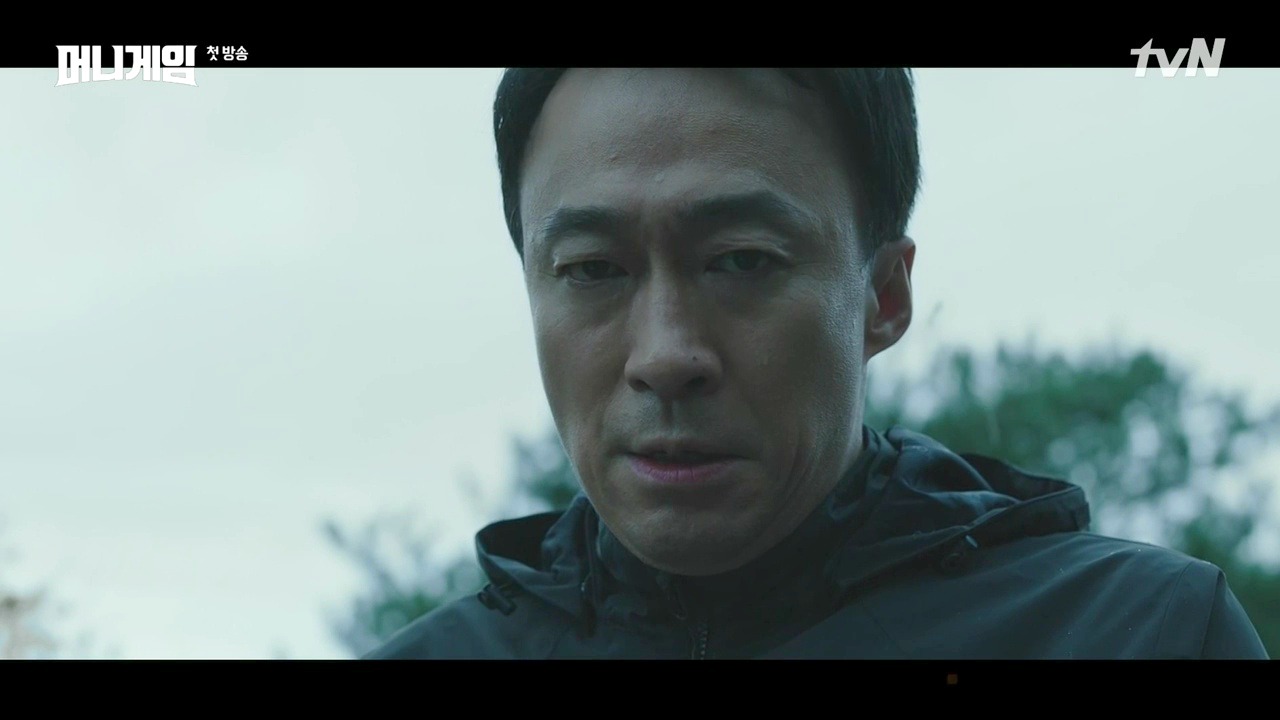

COMMENTS
The IMF Crisis in the 1990s, called the Asian Financial Crisis in the U.S. left a lasting impression on everyone who was affected — from government administrators to a certain leading economist and the newly hired civil servant who witnessed her father’s suffering after he was ruined. Obviously, there are strong feelings about the lessons that were learned, or not, and the future of a country hangs in the balance as history threatens to repeat itself. The danger, of course, is that there are certain economic principles that cannot be ignored or avoided but that doesn’t seem to matter when personal ambitions are introduced into the mix. Which is how the passionate Professor Chae ended up at the bottom of that ledge.
No matter how maddening he might have been, Professor Chae possessed a deep understanding of the principles that govern a discipline as complicated as economics. He could see so clearly what others couldn’t or wouldn’t, serving as that lone voice in the wilderness in the hopes of preventing a disaster. But Heo Jae wasn’t interested in Professor Chae’s warnings because he’d convinced himself that he’s the one person to right the country’s economic ship.Furious that someone stood in the way of his vision, Heo responded with that violent act against Professor Chae.
That first hint that Heo is a rogue public servant came when Hye-joon references the IMF Crisis and asks him about his present outlook. Heo talks about volition and the individual in the field and Hye-joon takes notes. I’m so fascinated by her and the way that she seems to absorb information so I can’t wait to learn why exactly she became a public servant. I do think that she wants to serve the public, but I also think that Hye-joon has her suspicions about what really happened during the IMF Crisis and what better place to conduct her research than the International Finance Bureau. Hye-joon remembers all of the players the day that Jaeyoung Bank closed its doors in 1998, especially a certain elegant blonde and Heo Jae.
Somehow, no one seems to know that Yi-heon is the son of Professor Chae and it’s a secret that they actively maintained. As a free market economist, Professor Chae must not understand how his son ended up working for the FSC, which is all too eager to interfere in economic matters. Their final argument and the ensuing chill is doubly tragic in light of Professor Chae’s “accident.” Without Professor Chae to stall the FSC, will Yi-heon’s opinion about the government’s role change? As Heo’s plan takes shape, will he finally understand his father’s concerns and embrace them? I have a feeling that a certain Level 5 civil servant, who’s constantly dismissed because she didn’t attend a top university, is about to blow the lid off of what really happened during the IMF Crisis. That should change the way that her arrogant superiors and contemporaries see her, but until then, Hye-joon will bide her time as she watches and listens.
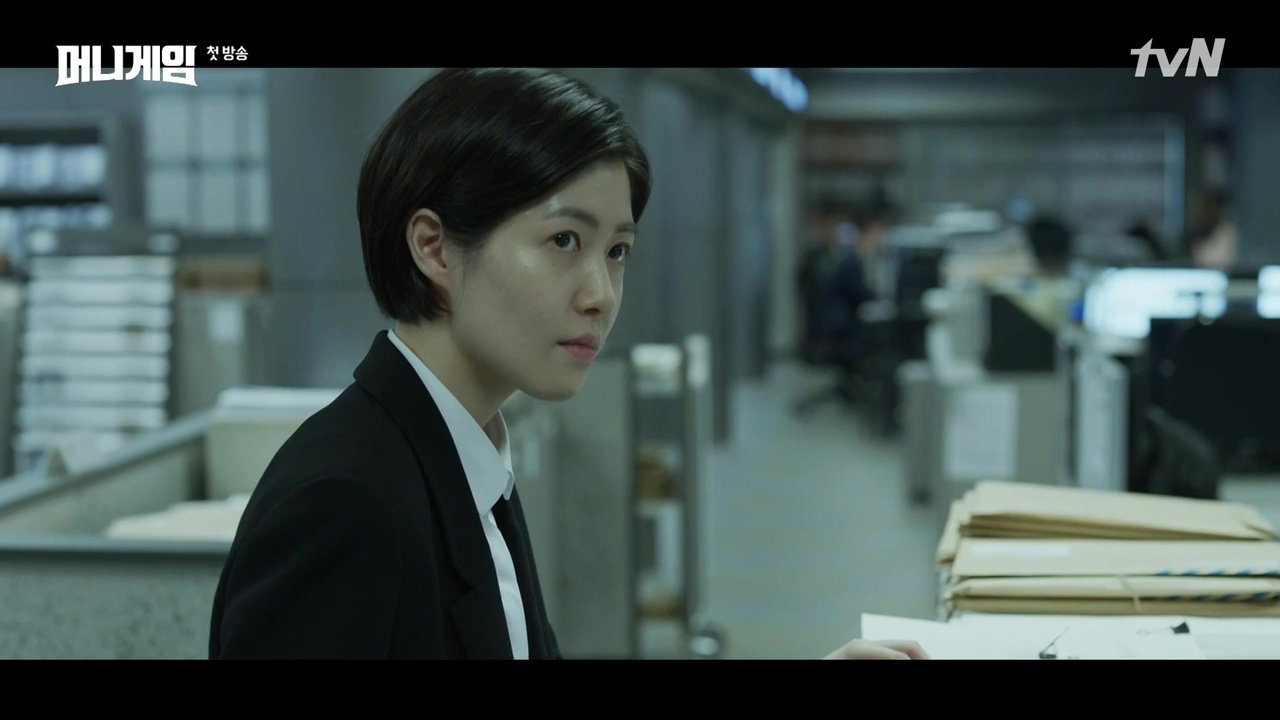
RELATED POSTS
Tags: Go Soo, Lee Sung-min, Money Game, Shim Eun-kyung
![[Beanie Recs] Lee Yi-kyung, please](http://d263ao8qih4miy.cloudfront.net/wp-content/uploads/2022/05/BeanieRecs.jpg)
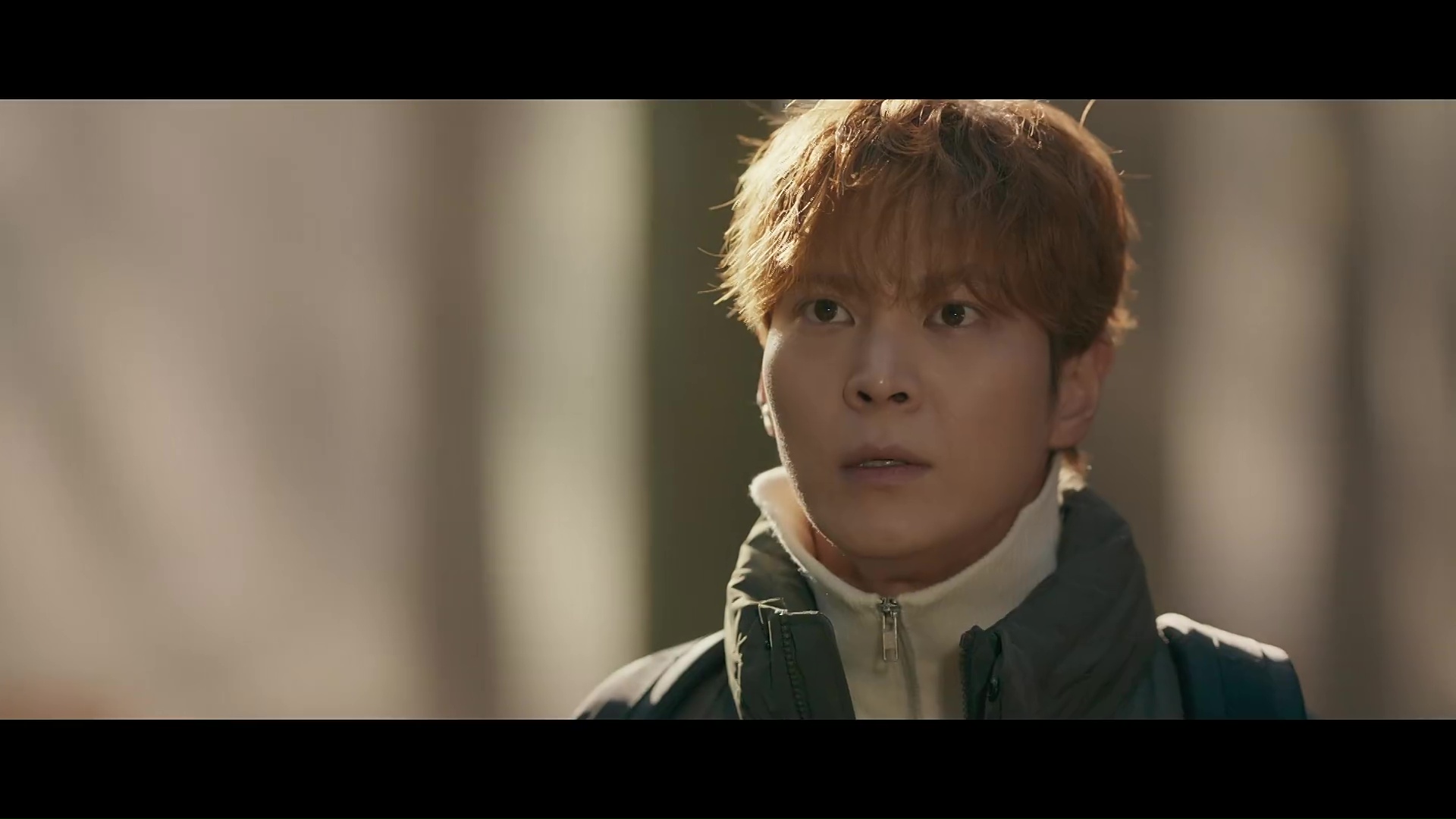
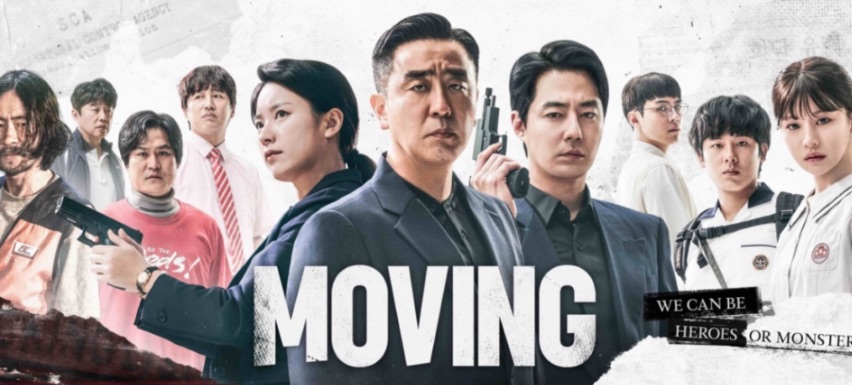
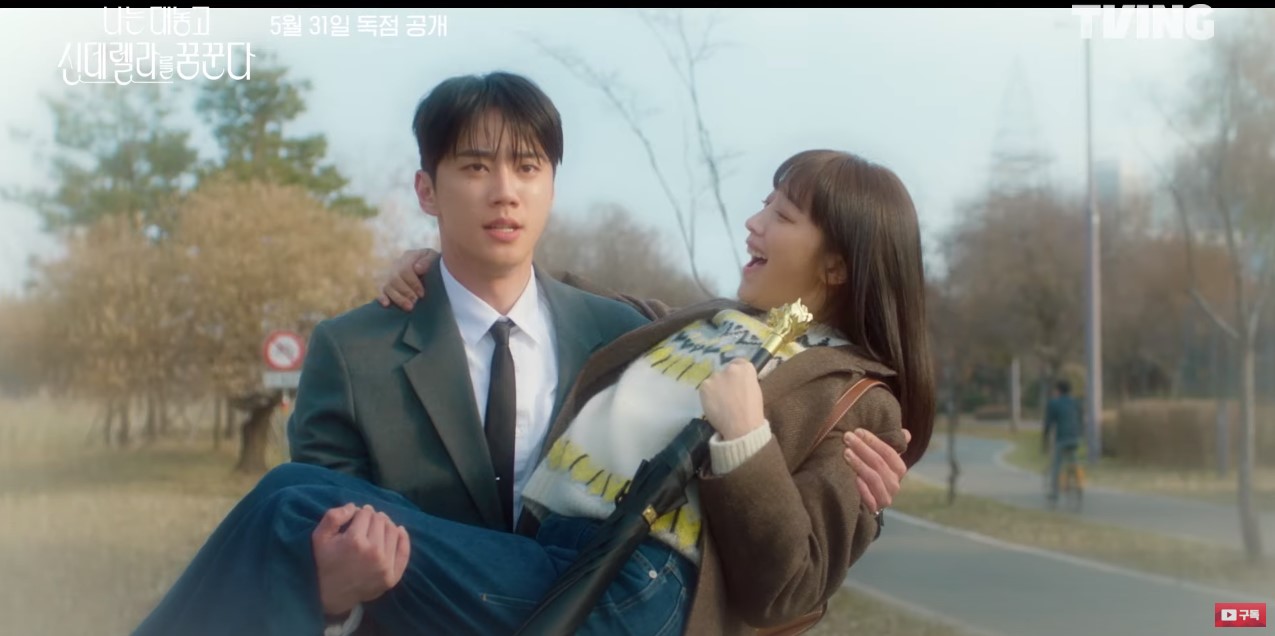

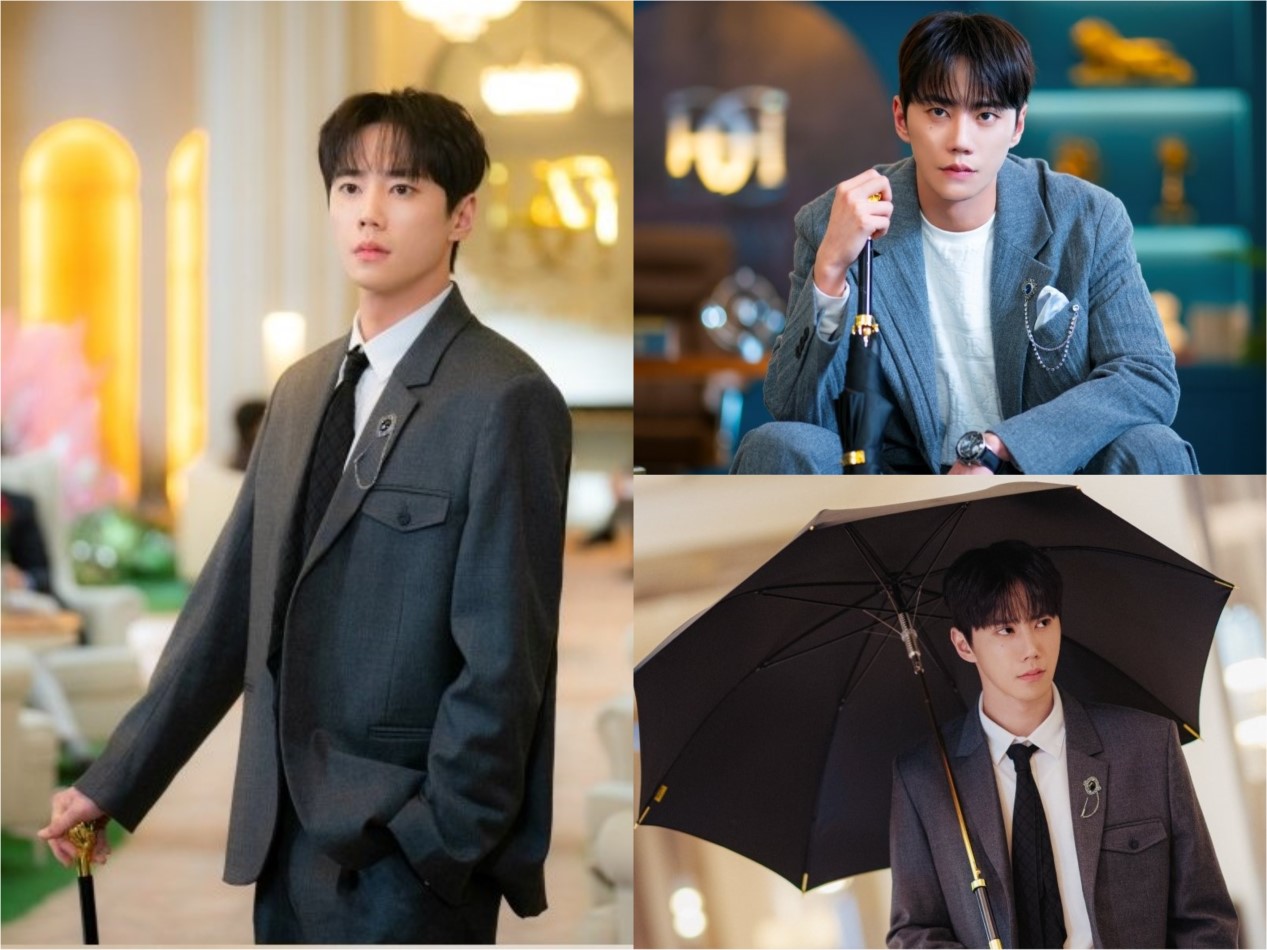
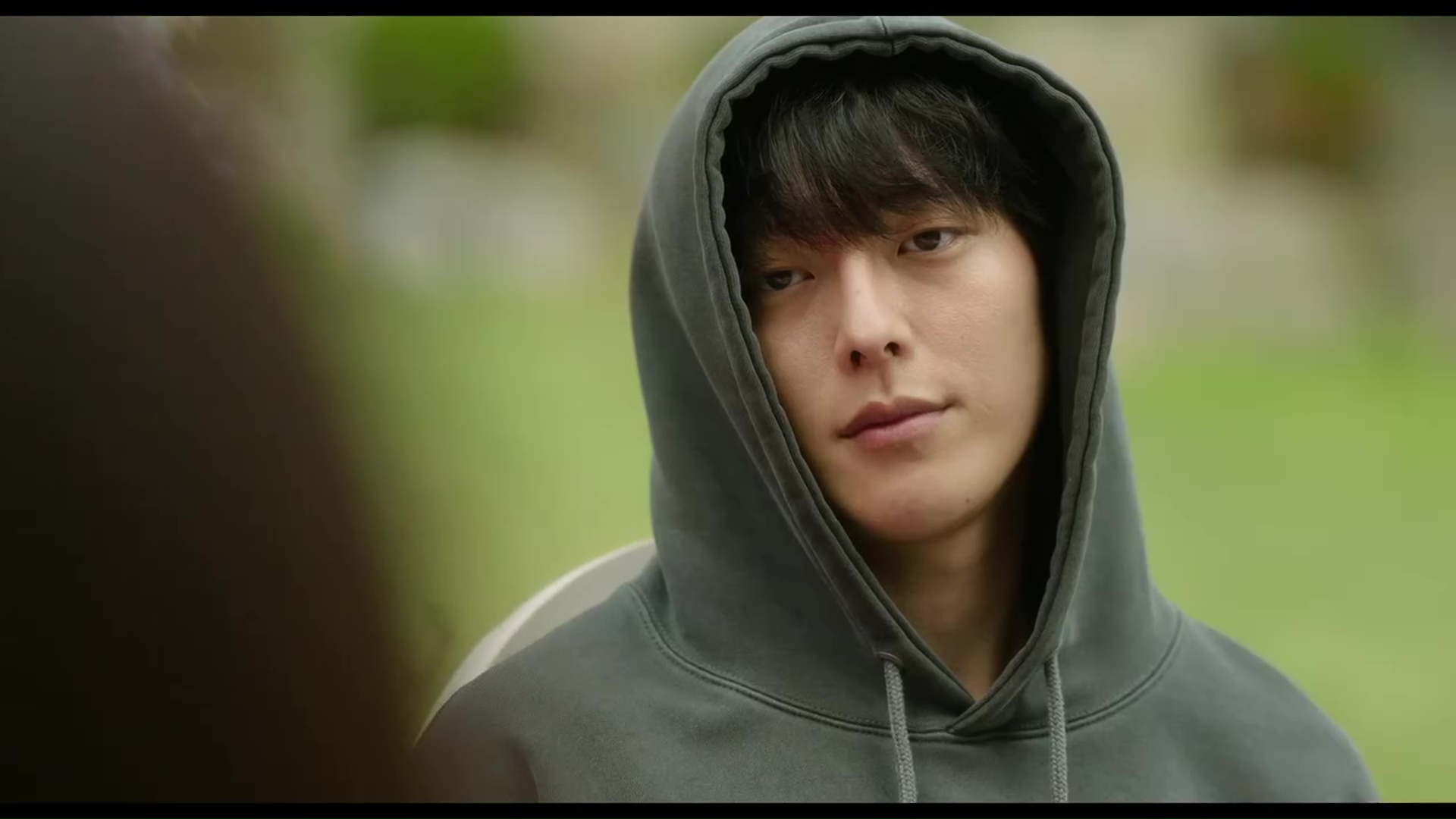
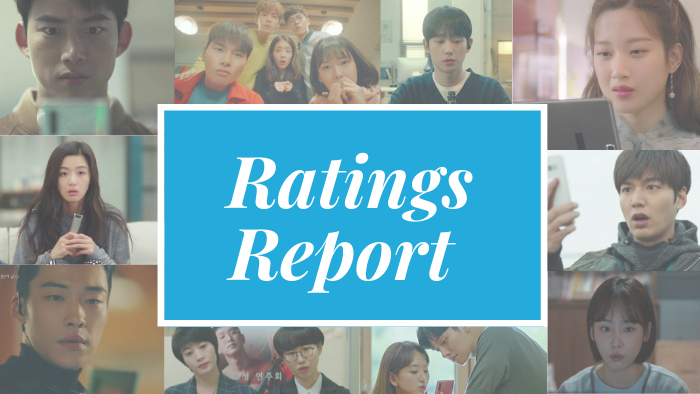
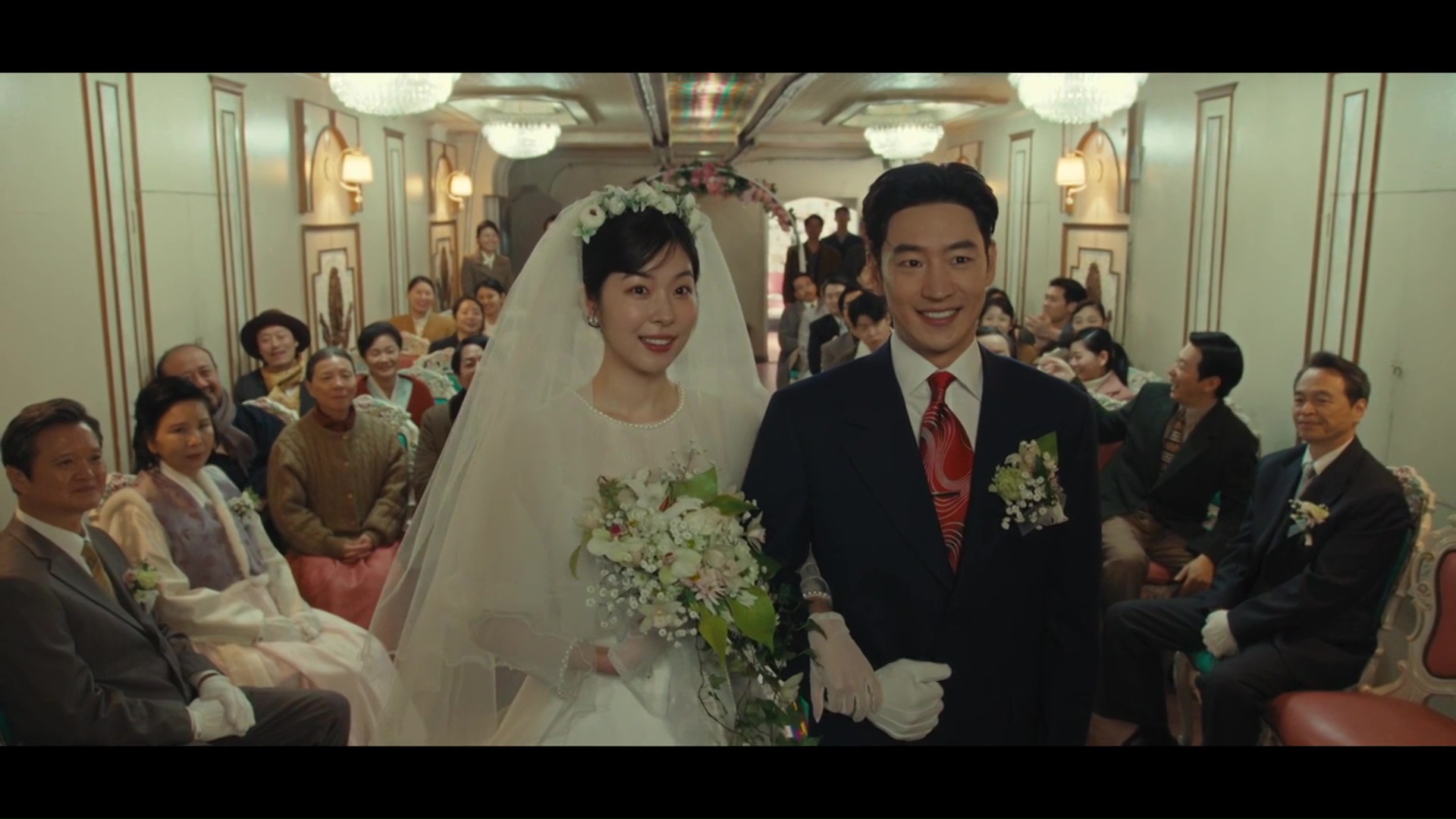
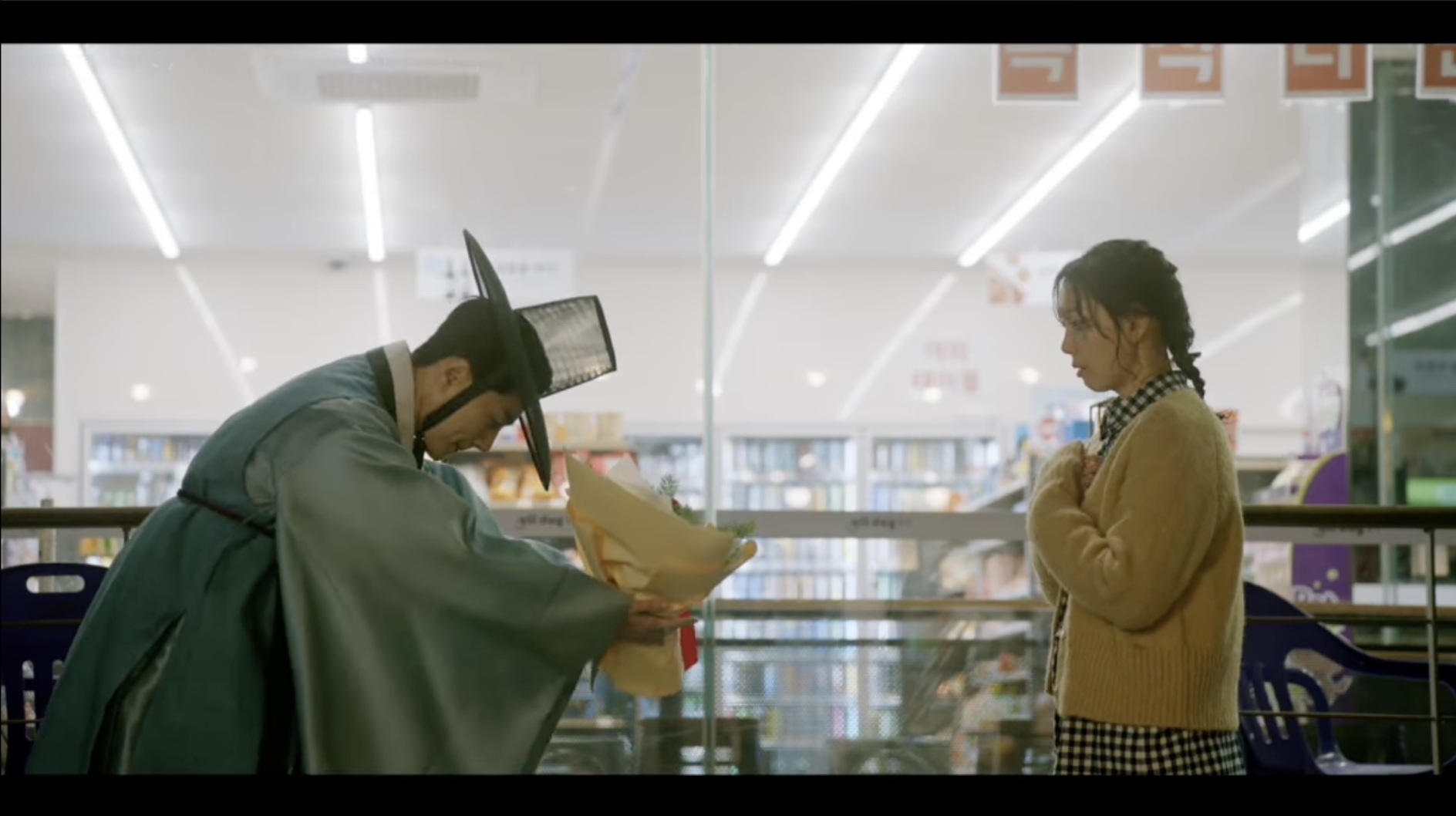
Required fields are marked *
Your email address will not be published. Required fields are marked *
1 drunkfairy
January 19, 2020 at 11:43 PM
Fantastic. I love this!
Required fields are marked *
2 cat-cric-kat
January 20, 2020 at 12:10 AM
This show deserves a comment.
Is Heo really rogue? the evil? and Professor the righteous force?
Taking sides here is the biggest risk of the show.
That's why heroine's question clicks - What someone was long ago not necessarily be the case in present - for things and people.
desperation is visible from all sides. Theme music is good and the discrimination faced by heroine so real. Class system in action.
This show is about - Subject -
Some actions look dramatic and i hope they are carefully described in later episodes. I'm investing in it and Drama of the week and potential drama of the season for me.
Required fields are marked *
amruta1009
January 20, 2020 at 2:00 AM
Might disappoint you. I can feel it.
Required fields are marked *
cat-cric-kat
January 20, 2020 at 2:20 AM
Most kdramas lose all sense in 2nd half and i drop most kdramas around 8th-9th episode. Your senses have predicted it almost right. But 1st week made me take risk and go all in.
Required fields are marked *
spazmo
January 20, 2020 at 3:00 AM
me too for now... i think it's going to be a keeper.
*fingers crossed*
Required fields are marked *
amara
January 23, 2020 at 4:44 PM
hope not. capitalism bad.
Required fields are marked *
3 amruta1009
January 20, 2020 at 12:56 AM
So I decided to watch this drama after all and just like some of the dramas I am watching now I had to look a lot of stuff up. Oh the things I wouldn't have thought I would watch. Topic is again something I wouldn't have thought I would watch a drama on. It's like the current theme or something. Requires a lot of patience on my part. Just finished watching this episode few hours ago.
Anyway I am liking Hye Joon already. Ending though I don't know what to think of that. Liked the music. Would this drama thrill me, should I continue, well let's see.
Required fields are marked *
4 Kurama
January 20, 2020 at 2:21 AM
I'm curious about this drama but I understand nothing in economy, it's harder in other language than mine and I don't really know the 90 crisis... So I think I will pass this one.
Required fields are marked *
5 knewbie
January 20, 2020 at 6:56 AM
I'm afraid I don't agree with TeriYaki's view of Chae Byung-hak as "the lone voice in the wilderness" that everyone else was ignoring. He obviously overruled Heo Jae at the earlier meeting about Jeongin Bank. He had the ear of the president; he had the outgoing FSC chairman on his knees before him. Heo Jae believed that Chae's recommendations concerning the next chairman were going to be the last word on the matter. And Chae was former head of the Economics department at Seoul National University, whose Old Boys' Club appears to dominate the world of this drama in a most unpleasant way.
In short, Chae was no maverick guru whose unconventional teachings were going to save the economy. His teachings were already the status quo. It's not that he "saw what others couldn't or wouldn't" - rather, almost everyone was already seeing things his way (hence Heo Jae and Yi-heon's anticipation of massive resistance to their plans). That is why Chae saw no reason to explain his ideas, not to his son, not to Heo Jae, and certainly not to us, the viewers; he only needed to keep asserting that Heo Jae was wrong and would destroy the economy.
The Chae I see so far had status, wealth, slavish devotion from his acolytes and even from society at large, and complete self-belief. But none of these qualities is a guarantee of genuine understanding of the discipline and the circumstances, and the agonising scenes both inside and outside Jaeyoung Bank (not to mention Heo Jae's helplessness) seem like an indirect rebuke to what Chae stood for. Perhaps the character and his ideas will come into greater focus later through flashbacks (cos I bet there's some history between him and Heo), but at the moment his belief that the free market should be given free rein is quite hard to take, bearing in mind what unbridled capitalism has already done to the environment, health care, education, etc.
Required fields are marked *
amara
January 24, 2020 at 12:29 PM
it's pretty clear from this interview that the writers believe his ideas are wrong
(interview here: https://forums.soompi.com/topic/441923-current-drama-2020-money-game-%EB%A8%B8%EB%8B%88%EA%B2%8C%EC%9E%84-wed-thu-2130-kst/?tab=comments#comment-21667176)
i happen to agree and be very anti-capital. i think we just really really need some answers. i know capitalism and male domination do lead to not wanting to explain but it seems like they're not being specific ENOUGH with the economics. and just how awful capitalism is and how that exact theory made things fucked, and allowed US power to continue in the muck, and got the rich richer. and why it's happening AGAIN.
Required fields are marked *
knewbie
January 25, 2020 at 4:48 AM
Thanks for the link! Interesting that the writers not only mentioned "the nation that faithfully protects its people", but also that "Heo Jae dreamed, Chae Yi-hun tried to practise etc". The problem is that the writers have also made the idealistic Heo Jae murder Chae Byung-hak (and in later episodes do some rather weird things). Thus Heo almost immediately - and quite understandably - gets associated with villainy, while Chae becomes a martyr for the free market or something. If the writers are as left-leaning as they claim to be, they'd better get their act together quick, cos as far as I can see most international viewers are on the way to promoting Chae to sainthood (and damning Heo to hell).
Required fields are marked *
amara
January 25, 2020 at 9:49 AM
i THINK they are attempting what i am going to say but this could just be trying to understand what the hell is going on...
so when prof chae spoke to yi heon in the beginning he was like "dont say anything if youre going to lie and scam them" then when he's fighting with heo jae he tells him not to be dogmatic and prideful or else it'll be a huge mistake; his free market notions and how staunch he was about it fucked up the economy. he knows corp interest came first and the top profited (well some failed but you know.)
the problem with this is the show literally never establishes who and why he was working with for him to get that nice-ass fancy house. so it was like okay he was a capitalist but we need more than that to understand what he gained? and, post economic crash, what changed??? how did he know he messed up? like...mentioning milton friedman who literally posed individualism over everything but there was definitely an economic gain for him. but i guess that's implied for chae... ANYWAYS, he's dead so.
i /think/ that was the point.
now heo jae has pivoted to crony capitalism. i dont know if that was his original thought, i dont think that was what he had in mind! especially with shannon being white supremacy~* (i have NO idea what happened in episode 4 in that hotel room, lol)
afaik he shunned corporate influence and wanted regulation, which is the point of government in the economy that capitalists dont want. i've thought about his stance outside of his own megalomania now and it seems he believes foreign influence will help them be a power....but then that shows a fundamental misunderstanding of HISTORY
maybe he's thinking that being on an axis of supreme power shields them...i dont know...so it's back to this idea that the people dont matter and money keeps things nationalist? i cannot understand his line of thinking. that makes him a terrible economist if so and just someone with no common sense. so i guess it's the power he wants ("people who rule and those who are ruled" which is literally the evil of capital.)
i guess in his argument with yi heon being so powerful that you cant be looked down on means being on the top of a country but that puts your thoughts and selfish feelings and drive first.
when he did that to chae, maybe that gave him a different look at power, or i'm assuming, and he figured out now he can really take it as far as he wants. so he thinks that decimating the economy and creating more of that divide helps them build from the ground up. what it does is let the gov via big money/wall street control and he would be a part of that control...
idk it's confusing, that's the problem bc now heo jae definitely puts wall street / corp interest / elitism above the interests of the people so but they didnt make it clear that chae had changed his mind and that uh capitalism is bad!!! and we dont want the free market lol
im soooooo confused about the reception of chae, i...
Required fields are marked *
knewbie
January 26, 2020 at 1:45 AM
But I don't think Chae ever changed his mind or thought he'd messed up. One of the things that irritated me about him was that he seemed to float serenely above all the struggle and failure and bitterness, safely ensconced in academia with a regular, substantial (though not chaebol-level) salary and presumably a nice pension too. (And how lucky for him that he'd retired before the marketisation of higher education.) This means that his livelihood - as well as that of civil servants like Heo Jae - would have been completely untouched by the IMF crisis. Without being directly affected, he would probably have held fast to his neoliberal beliefs, e.g. that the country's recovery had resulted from the relaxation of government regulation (as stipulated by the IMF).
As for Heo Jae, I can't believe he really thinks selling Jeongin to Bahama is in itself a good idea. The flashback to the Jaeyoung Bank episode, and his current behaviour towards Lucio and Han, seem too... I dunno... complicated for him to be genuinely getting into bed with them. (Ok, ok, horrible image, but you know what I mean.) So yeah, I agree with @cheekbones below about his intentions towards Bahama, but at the back of my mind I'm thinking "What if the writers simply forget that Heo Jae is supposed to be a dreamer at heart, and decides to let him become a hypocritical monster?"
amara
January 25, 2020 at 9:52 AM
i dont know. right now i am trying to see how heo jae justifies what he thinks now. what were his original plans then? because i've gone back in every episode to look at his words. what they keep out is that these ideas just seem to be ideas and arent specific. theyre just vague notions!
but i think they do expand every episode on that...kind of...i dont think the writing is suporting this well at all. also the obvious predatory loaning and capitalist message, misogyny, destruction, poverty THEY NEED TO BE CLEARER ON INTENTION AND WHY! AND EXPLAIN TO PEOPLE WHAT YI HEON AND HYE JOON WANT and also what the hell happened to heo jae. omg im driving myself crazy thinking about this i am so unsatisfied lmao
Required fields are marked *
cheekbones
January 25, 2020 at 7:52 PM
Ah hah, you're so into the drama ! But Heo Jae IS confusing. His actions seems to contradict his beliefs. That's why I think he wants to bring down Bahama, the biggest vulture in Wall Street, as well in his big plan.
It is unfortunate, as @knewbie pointed out, that the show made him a murderer (although it is an accident). Would it be more interesting if he hadn't been a criminal ?
amara
January 25, 2020 at 8:15 PM
@cheekbones i am! I just want more answers. We need to know the moral positions!
I think it would. Lile @knewbie said it just adds to him being ~crazy~ which is unfortunate lol
6 Rumi~
January 20, 2020 at 3:10 PM
Oh this drama seems a little bit too close to reality.... I like to use dramas for an escape. What I read in the recap sounds interesting, but I think it might translate to boring as a watch.
Maybe as I finance student I'd enjoy it more, since it'd make what you're already supposed to study more digestable.
Required fields are marked *
7 cheekbones
January 20, 2020 at 11:17 PM
I know little about Economics, but I don't think it's an exact science. Policies are being decided on and carried out with no exact results being known beforehand because there are so many factors and variables at play. There's no right and wrong per se in Economics.
That's why I'm actually very interested in learning why Prof Chae says that Heo's policies would ruin the country's economy. That's the show weakness in the first week, imo. We're just being told so, but Prof Chae could be wrong. There's no definite answer.
My country has also experienced financial crisis and banks not performing and unable to meet their due obligations. I think our government intervene in some cases. That's why I'm most interested in knowing the show's argument as to why Heo's policies would ruin the country. Not just being told so by Prof Chae.
Required fields are marked *
knewbie
January 21, 2020 at 2:31 AM
I'm not sure if the show is arguing that it's Heo's policies per se that will ruin the economy. As far as I can see, Chae and Heo are being presented as the opposite extremes of an ideological spectrum. On Chae's side, the weakness is - as you've pointed out - that he never explains why he believes so strongly that Heo will fail. As I mentioned above, I think that's because he is utterly secure in his ivory tower, with plenty of acolytes in high places and a deep sense of intellectual and social superiority. On Heo's side there's a bit more to go on. In the Jaeyoung Bank flashbacks, he seems numb with horror and helplessness, which suggests that his fanaticism has its roots in his desire to somehow avenge the suffering of people like Hye-joon's dad during the IMF crisis.
I think two such fanatics would have been enough for the show, and certainly enough for Yi-heon and Hye-joon to deal with. But the writer has also muddied the waters with melodramatic elements like Heo's deep personal resentment of Chae, and his strange plan involving Shannon Lucio's company, Bahamas. I think Lee Sung-min manages to sell this very messed up character: e.g. the utter frustration at Chae always obstructing him (and I really don't think it's a simple matter of not being promoted); the ambivalent manner towards Lucio (half deference, half contempt). Oh well. No matter how melodramatic it gets, I'm looking forward to Yoo Teo as a Bahamas bigwig later in the series.
Required fields are marked *
cheekbones
January 21, 2020 at 4:27 AM
Yes, they're fanatics representing the opposite ends of the spectrum. I don't understand Heo's plan either. Seems like his action contradicts his belief. But maybe he wants to take down Bahama (or Shannon) along the way.
Lee Sungmin indeed is fantastic as usual. I also like Shim Eunkyung as Hyejoon. And I'm looking forward to seeing Yiheon's transformation. At the moment he does seem like a timid person.
And why is the actor playing Hyejoon's boss always gets the as***le roles ? 😂
Required fields are marked *
knewbie
January 21, 2020 at 7:49 AM
Yes Yi-heon does seem rather unsure of himself right now. I don't really like Go Soo, but I've got to say he's pretty believable as a mid-level civil servant tiptoeing cautiously around his superiors.
That actor who plays Director Na? Yes the poor guy has played some of the biggest as***les in Korean drama :D. I remember him as kind of cute and goofy in The Miracle We Met, though.
Required fields are marked *
amara
January 24, 2020 at 12:26 PM
i agree with you. too vague. i dont think heo is fanatical but i think that chae sees anything that isn't small gov, money domination as a pipe dream. which is...a huge problem in general in the world. but yea im like this man needs to explain why he is so against it. idc what he says but like...be honest?? u live in a huge house so u want to protect ur money maybe? ok then!!! we just need an answer omg!
Required fields are marked *
8 amara
January 24, 2020 at 12:24 PM
i dont think that prof. chae represents the right aspects at all. the US majorly affected this crisis, and banks used the public for their safety. same with the huge problem in 2008 in the US. capitalism was the end goal. actually, i think it's unfair to say that chae did have a certain understanding because the interest was so in favor of banks and holders. peoples livelihoods were decimated in favor of a friedman-esque economics. it was that policy that makes this happen again.
and the thing is, heo is frustrated and angry and what happened imo wasnt intentional. but that doesnt mean that chae deserved it but it also doesnt mean his anti-capital stance (heo) is wrong. i think the show needs to be much clearer about this. if it's a statement on society, we know from the interviews about the show that they believe that creating the have/have not society is wrong...SO....it's kind of in the water rn not clear about what people really want? idk if i'm explaining this right. i just dont get it lol. and capitalists always want free market, you'll get what hte market demands, etc
Required fields are marked *
9 cheekbones
February 1, 2020 at 12:05 AM
@boughtabride @knewbie
I just finished watching ep 6. The show is slowly but steadily drawing me in. It's quite fascinating. It's also a character study, yes ?
Eugene Han is certainly more thrilling than flat Shannon Luccio ? Heo Jae is getting a worthy rival. Chae Yiheon's ascension to hero status is slower than I have expected, but that's in keeping with his character. He's really just an ordinary civil servant with a bit more consience than his peers and superiors.
And I really want a painful fall (figuratively speaking) for Chief Na. What an ass.
Required fields are marked *
knewbie
February 2, 2020 at 4:18 AM
Ooooh sounds good. I was busy last week but will try to watch eps5-6 asap. Agree that it's realistic that Yi-heon doesn't suddenly become Wonder-Whistleblower or Economist Extraordinaire. Although he has spent all his life in the shadow of his father, it's still pretty much a life of privilege, and he has never had to struggle the way Hye-joon has.
Required fields are marked *
amara
February 2, 2020 at 4:20 PM
i am gonna catch up now!!!! eugene han is....very............cute......
i am glad it's getting better!!!!
Required fields are marked *
10 Marc
February 14, 2021 at 4:28 PM
Aside from being a banking and eco enthusiast, i am also a big fan of Ms. Shim Eun-Kyung which made me watch the series till the end. Nice story plot which makes me thrilled till the very end while watching my very own idol Shim 💗
Required fields are marked *
11 wheguhreh
January 6, 2023 at 11:08 PM
I just watched this drama for the second time to do a spiritual cleanse of sorts before making my new year's resolutions and actively engage in the Socratic method of Kdrama logic. Who's really right and wrong? Are there really good and evil people when it comes to the human condition? How much or little should intention and motivation matter when it comes to judging our fellow mankind and ourselves when no one is watching? These are the fundamental questions that this drama forces us to contemplate in the context of a financial thriller driven by the real protagonist, money.
I loved that this drama throws so much gray area across every basic premise that it's enough to wonder if any other distinct color exists. No character is exempt from flaws, but this drama also justifies those flaws by revealing their past. Each major action and decision made by the characters is loosely, if not explicitly, tied to questionable cause-and-effect scenarios that seem to condemn the viewer's own morality if judgment is passed. It's almost as if it throws its hands up in the air to say, "What can you do, it is what it is."
The entire drama is a perpetual question mark that psychologically prods one to ask oneself, "What would you do in that situation?" while providing no good answer. The actual plot lines are tied up succinctly and satisfactorily enough, but the moral and ethical questions are far from even being discussed, much less closed with a passable answer.
At face value, the actual deeds clearly point out the good and bad guys, right from wrong, victors over losers. However, in the context of the real questions this drama presents, amidst issues raised that are all too real in the real world, this drama merely tips over the lid of Pandora's Box with no satisfactory "answer."
Required fields are marked *